About Department
The department of Chemistry established in 2001 with M.P.C Program. It was started by Sree. N.S.S.Narayana Murthy under his able leadership.Dr.M.Malyadri
rended his services to NCC & different extension activities in the college.He also completed a "Minor Research Project" under UGC . DR.V.Srinivas extended his services to the college as IQAC coordinator & also acted as ECO Club coordinator
The club always extending its services to protect envirnoment. We celebrate " International Day for the Preservation of Ozone Layer" on Sep 16th,2022 in association with Physics department.
Our staff profusely train the students are proficient enough in Chemistry. A new up coming program B.Voc in aquaculture was introduced in 2021 according to local envirnoment conditions.
CHEMISTRY
Teaching Staff
NAME Designation Qualification Photo Profile G. Nagarjuna Lecturer M.Sc., M.Ed., M.Phil., Ph. D. 
click here Previously Worked Teaching Staff
NAME Designation Qualification Photo Profile From To Duration Khambhampati sujatha Lecturer MSc, Mphil 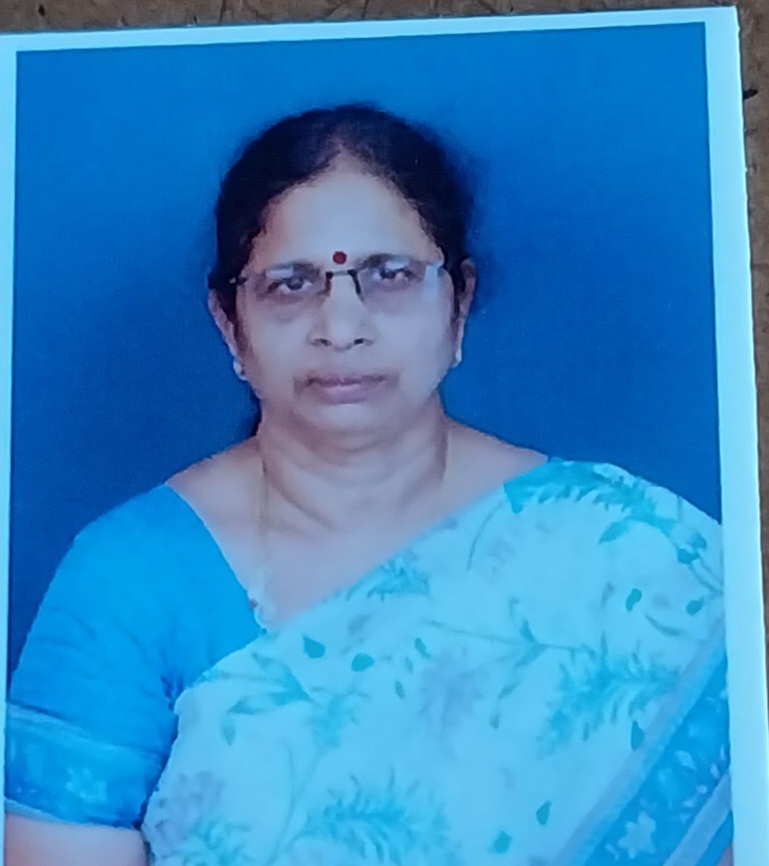
click here 2019-08-22 2023-08-31 4 YEARS 0 MONTHS
Programs Offered
| S.No | Year of Starting | Title of the Program | LEVEL (UG,PG) | Duration (in Years) | Sanctioned Annual Intake |
|---|---|---|---|---|---|
| 1 | 2001 | B.SC (MATHS, PHYSICS, CHEMISTRY) | UG | 3 | 60 |
| 2 | 2020 | B.VOC (ZOOLOGY, AQUACULTURE, CHEMISTRY) | UG | 3 | 30 |
Chemistry Syllabus
0 results CBCS 2020-21 Regulation
SEMESTER
NAME OF THE PAPER
Syllabus
I
INORGANIC AND PHYSICAL CHEMISTRY
click here
II
ORGANIC AND GENERAL CHEMISTRY
click here
III
ORGANIC CHEMISTRY AND SPECTROSCOPY
click here
IV
INORGANIC,ORGANIC AND PHYSICAL CHEMISTRY
click here
V
6B and 7B
click here
IV
I & P CHEMISTRY
click here
CBCS 2015-16 Regulation
SEMESTER
NAME OF THE PAPER
Syllabus
I
INORGANIC AND ORGANIC CHEMISTRY
click here
II
P CHEMISTRY
click here
III
INORGANIC CHEMISTRY
click here
IV
SPECTROSCOPY & PHYSICAL CHEMISTRY
click here
V
5B
click here
V
6B
click here
VI
CLUSTER PAPER
click here
Course Outcomes
Course I (Inorganic & Physical Chemistry)
At the end of the course, the student will be able to;
1.Understand the basic concepts of p-block elements.
2.Explain the difference between solid, liquid and gases in terms of inter molecular interactions.
3.Apply the concepts of gas equations, pH and electrolytes while studying other chemistry courses.
Course II – (Organic & General Chemistry)
At the end of the course, the student will be able to;
1.Understand and explain the differential behaviour of organic compounds based on fundamental concepts learnt.
2.Formulate the mechanism of organic reactions by recalling and correlating the fundamental properties of the reactants involved.
3.Learn and identify many organic reaction mechanisms including Free Radical Substitution, Electrophilic Addition and Electrophilic Aromatic Substitution.
4.Correlate and describe the stereo chemical properties of organic compounds and reactions.
Course III – (Inorganic & Organic Chemistry)
At the end of the course, the student will be able to;
1.Understand preparation, properties and reactions of haloalkanes, haloarenes and oxygen containing functional groups.
2.Use the synthetic chemistry learnt in this course to do functional group transformations.
3.To propose plausible mechanisms for any relevant reaction.
Course IV – (Spectroscopy &Physical Chemistry)
At the end of the course, the student will be able to;
1.Learn about the laws of absorption of light energy by molecules and the subsequent photochemical reactions.
2.Understand the concept of quantum efficiency and mechanisms of photochemical reactions.
Course V – (Inorganic, Organic & Physical Chemistry)
At the end of the course, the student will be able to;
1.Understand concepts Of boundary conditions and quantization, probability distribution, most probable values, uncertainty and expectation values.
2.Application of quantization to spectroscopy.
3.Various types of spectra and its use in structure determination.
Course VI – (Inorganic, Organic & Physical Chemistry)
At the end of the course, the student will be able to;
1.Understand concepts of boundary conditions and quantization, probability distribution, most probable values, uncertainty and expectation values.
2.Application of quantization to spectroscopy.
3.Various types of spectra and its use in structure determination.
4.Understand and explain the differential behaviour of organic compounds based on fundamental concepts learnt.
Course VII Elective – (Analytical Methods in Chemistry)
At the end of the course, the student will be able to;
1.Compare qualitative and quantitative analysis.
2.Expresses the quantitative analysis methods.
3.Evaluate the analytical data in terms of statistics.
4.Evaluates the effects of systematic errors on analytical results.
5.Interpret the sources of random errors and effects of random errors on analytical results.
6.Define the general properties of volumetry.
7.Identifies the solubility by the systematic method.
Course VIII Cluster 1 – (Organic Spectroscopic Techniques)
At the end of the course, the student will be able to;
1.Recognize spectroscopy in microwave, Rotational spectra of rigid diatomic molecules, selection rules, interaction of spectral lines .
2.Study of Vibrating diatomic molecule, energy levels of a diatomic molecule, simple harmonic and anharmonic oscillator, Scattering of light and Raman Spectrum. rotational and vibrational Raman Spectra.
3.Learn Electronic spectra of diatomic molecules Born-oppenheimer approximation .
4.Make Students aware of the fine structure of ESR absorption, Hyperfine structure, Double resonance in ESR, Techniques of ESR spectroscopy.
5.Understand Principles and Applications of Mossbauer spectroscopy.
6.Understand concepts of Nuclear and Radiation Chemistry. Applications of Radioisotopes.
Course VIII Cluster 2 – (Organic Advanced Reactions)
1.Acquire applicative knowledge of new techniques and concepts in organic synthesis
Course VIII Cluster 3 – (Pharmaceutical and Medicinal Chemistry)
1.The Discuss drug discovery and design with respect to the lead molecules and its Optimization.
2.To impart fundamental knowledge on the structure, chemistry and therapeutic value of drugs. Understand the chemistry of drugs with respect to their pharmacological activity.
3.The subject emphasizes on structure activity relationships of drugs, importance of physicochemical properties, absorbtion, distribution, metabolism and Pharmacodynamics of drugs.
4.To know the mechanism of chiral drug action, the synthesis and pharmacological activity of some selective chiral drugs .
5.Applicative knowledge of synthetic medicinal products in development of newer drugs and importance of Pharmacokinetics & pharmacodynamics of drugs.
Program Outcomes
B.Sc MPC
PO 1: This course forms the basis of science for coherent understanding of the academic field to pursue multi and inter-disciplinary science careers in future. (MPC)
PO 2: Able to plan and execute experiments or investigations, analyse and interpret data information collected using appropriate methods (Practical Paper)
PO 3: It helps to develop scientific temper and thus can prove to be more beneficial for the society as the scientific developments can make a nation or society to grow at a rapid pace through research. (Renewable Energy Project)
PO 4: Students can Apply discrete probability distributions. (Survey)
PO 5: Discuss debate and communicate in a clear and logical way, with graduates other fields. (Seminar)
PO 6: Demonstrate skills and competencies to conduct scientific experiments & data analysis.
PO 7: Bachelor of Science offers theoretical as well as practical knowledge about different subject areas.
PO 8: Knowledge acquired through field trips/industrial tours is useful for their job work.
Previous/Model Question Papers
| Department | Academic Year | Semester | Subject | Paper | Download File | |||||
|---|---|---|---|---|---|---|---|---|---|---|
| No data available | ||||||||||
Time Table
Student Profile
Department Activities
DATE
NAME OF THE ACTIVITY
REPORT
2018-10-30
Water analysis in our laboratory by high school students
click here
2018-11-24
Students vist to old age home at challapalli
click here
2019-02-01
Soil analysis project by students
click here
2019-02-28
Quiz on national science day
click here
2019-11-19
Guest lecture
click here
2020-01-22
Guest lecture
click here
2020-02-08
Student Exchange programme
click here
2020-02-20
Field trip
click here
2021-02-26
Quiz
click here
2021-11-23
Guest lecture
click here
2021-12-18
Preparation of soaps and canldles by students
click here
2022-02-14
Awareness program
click here
2022-02-18
Project wor
click here
2022-02-18
project
click here
2022-04-01
Field trip under Eco club
click here
2022-04-22
Celebrations of world earth day
click here
2022-06-05
World environment day under Eco club
click here
2022-06-22
Student seminar
click here
2022-06-23
Student Exchange programme
click here
2022-06-25
Students Exchange programme with Govt Degree College Students Repalle
click here
2022-07-01
Students project work at Sree Icon pharmaceutical laboratory
click here
2022-07-28
World nature protection day
click here
2022-09-16
International ozone preservation day
click here
2022-11-30
FIELD TRIP ON COASTAL POLYMERS CHALLAPALLI
click here
2022-12-05
Guest Lecturer 4
click here
Results Analysis
Result Analysis
* required field
Student Progression
...
Publications
| S.NO | Name of THE TITLE | Journal published | Date of publication | LINKS |
|---|---|---|---|---|
| 1 | THE SOCIO-ECONOMIC STATUES OF WOMEN IN INDIA-ANCIENT TO MODERN ERA | ISSBN-978-81-947453-1-0 | FEB/2022 | LINK |
| 2 | Green Chemistry and Bio plastics |
IJMER international journal of multidisciplinary educational research ISSN-2277-7881 |
JUNE 2017 | click here |
| 3 | NEW SPECTROPHOTIMETRIC METHODS FOR THE DETERMINATION OF DRUG CEFPEROZUL | international journal of multidisciplinary educational research ISSN-2277-7881 | JUNE 2107 | LINK |
| 4 | CLOUD COMPUTING AND ITS NEEDS IN LIFE SCIENCES,R&D | CURRENTS TRENDS IN BIO TECHNOLOGY AND PHARMACY ISSN-2230-7303 | JUNE2017 | LINK |
| 5 | UNDERSTANDING THE HARMONY BETWEEN SELF FAMILY AND SOCIETY | GLOBAL JOURNAL FOR RESEARCH ANALYSIS ISSN-2277-8160 | SEPTEMBER 2017 | LINK |
| 6 | NUTRITIONAL VALUE INVITRO REGENERATION AND DEVELOPMENT OF TRANSGENIC CUCURBISTA PEPO AND C.MAXIMA FOR STRESS TOLERANCE:AN OVERVIEW | CURENT TRENDS IN BIO TECHNOLOGY AND PHARMACY ISSN-2230-7330 | 27/06/2020 | LINK |
| 7 | MEDICINAL PLANT BIODIVERISTY,SUSTAINABLE UTILIZATION AND CONSERVATION | SPRINGER NATURE ISBN-978-981-15-1635-1 ISBN-978-981-15-1636-8(EBOOK) |
APRIL-2020 | click here |
Awards/Achievements
0 results ...
MoUs/Collaborations
// output data of each row
List of MoUs
Name of the Institution/ Industry with which MOU is signed
Date of signing MOU
COLLEGE LEVEL/DEPARTMENT LEVEL
Activities under MOU
MoU
ABR GDC, Repalle
2020-02-08
CHEMISTRY
Student Exchange
click here
Sri Icon Pharmaceutical Laboratories
2022-02-18
CHEMISTRY
Project work
click here
Best Practices
Relavent Links
http://www.apsche.ap.gov.in
http://www.psc.ap.gov.in
http://www.gst.gov.in
http://www.upsc.gov.in
https://www.ies.gov.in/w.apcce.gov.in
Gallery
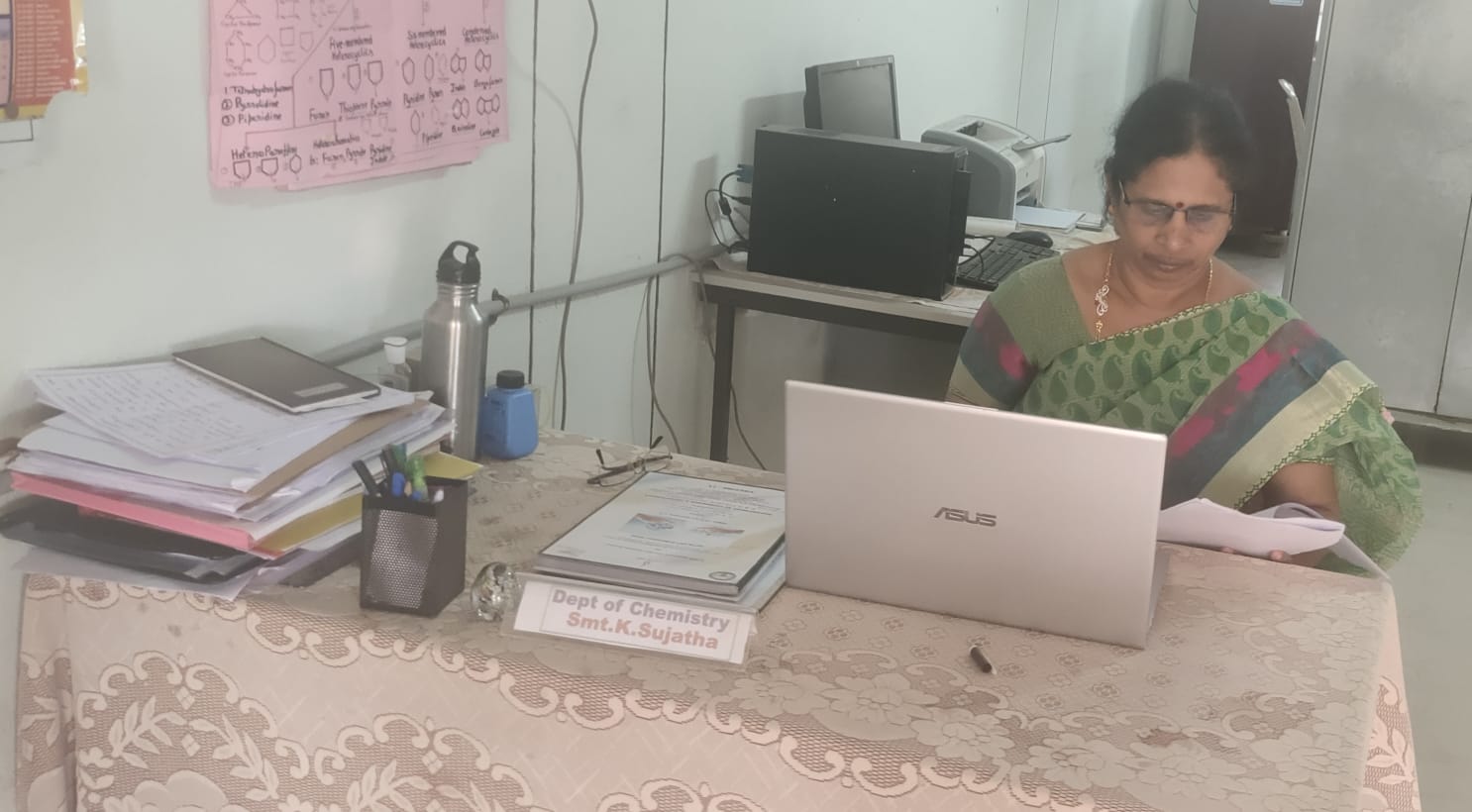
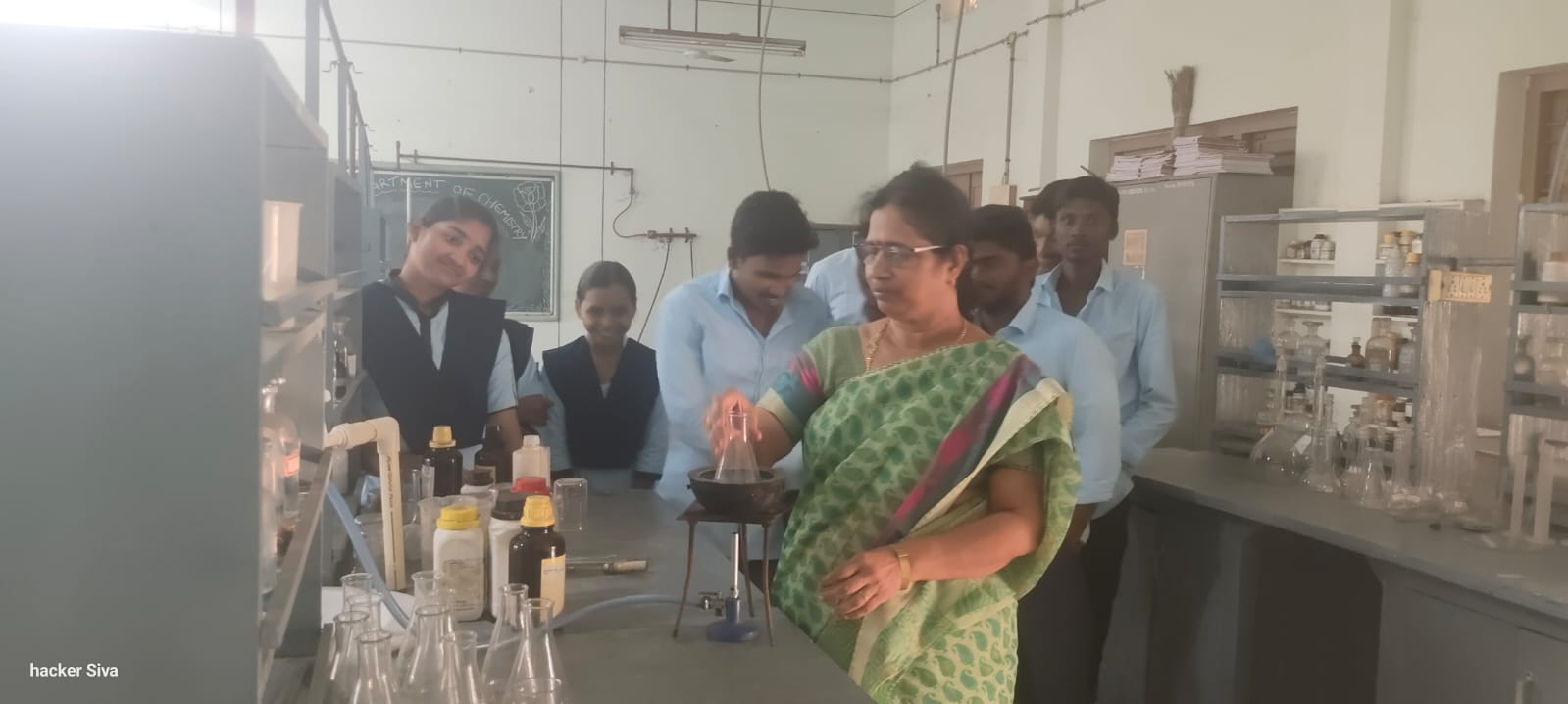
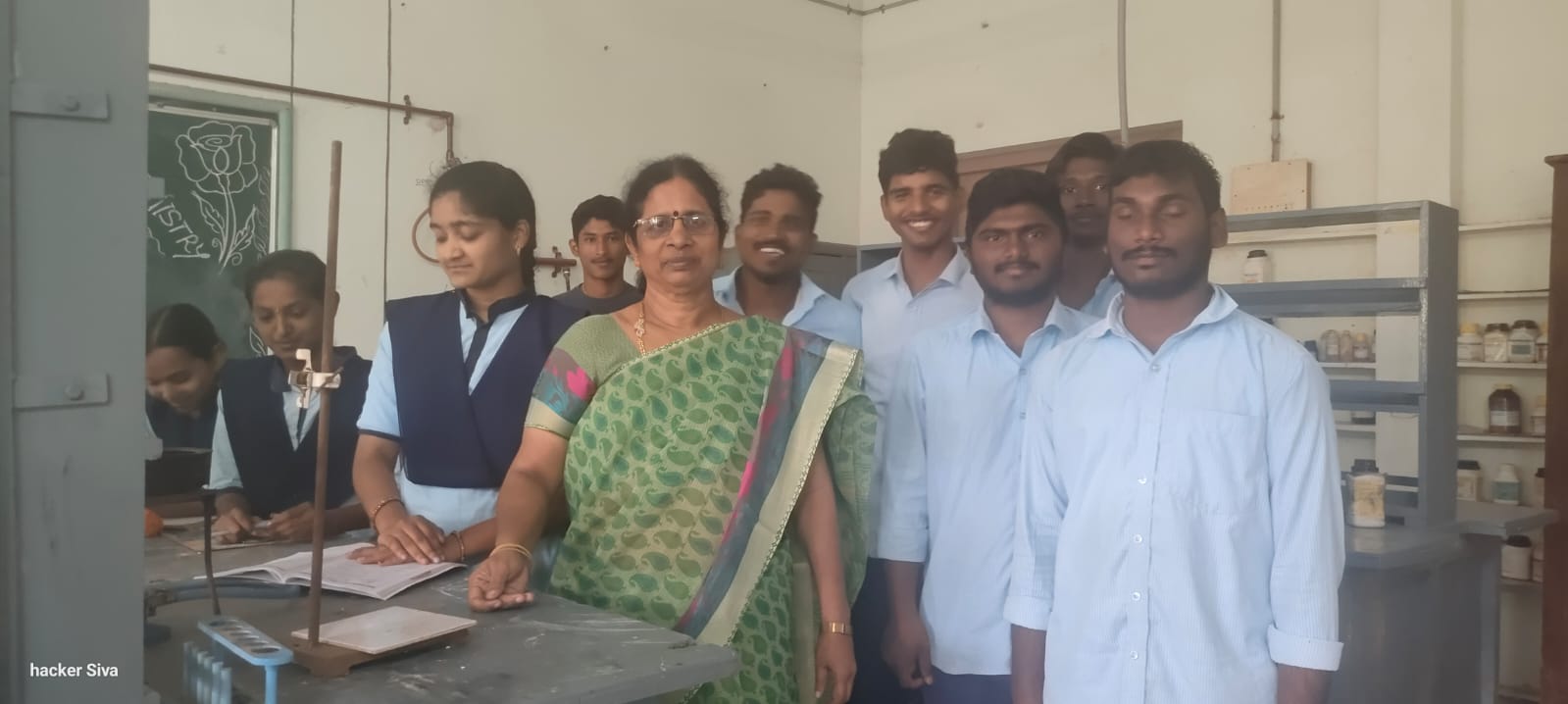
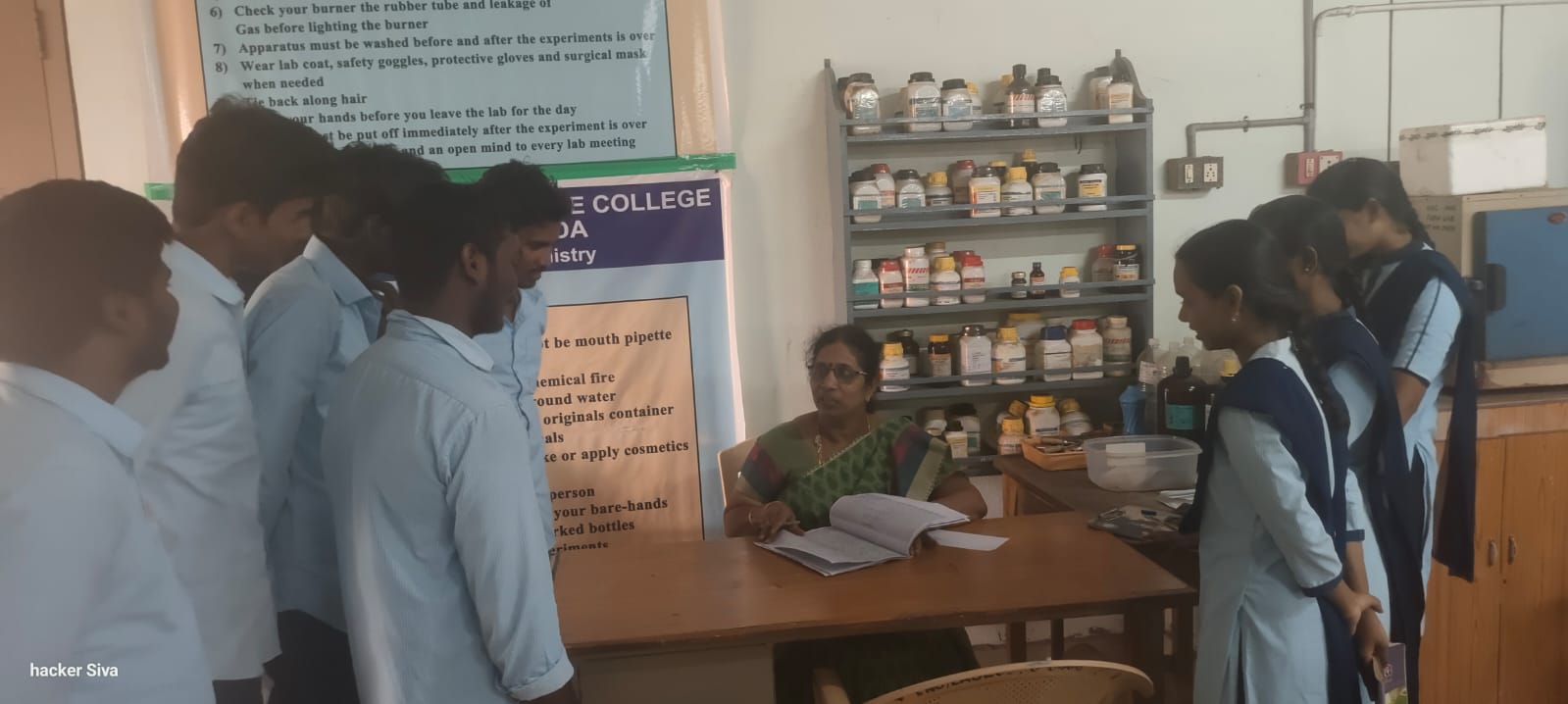
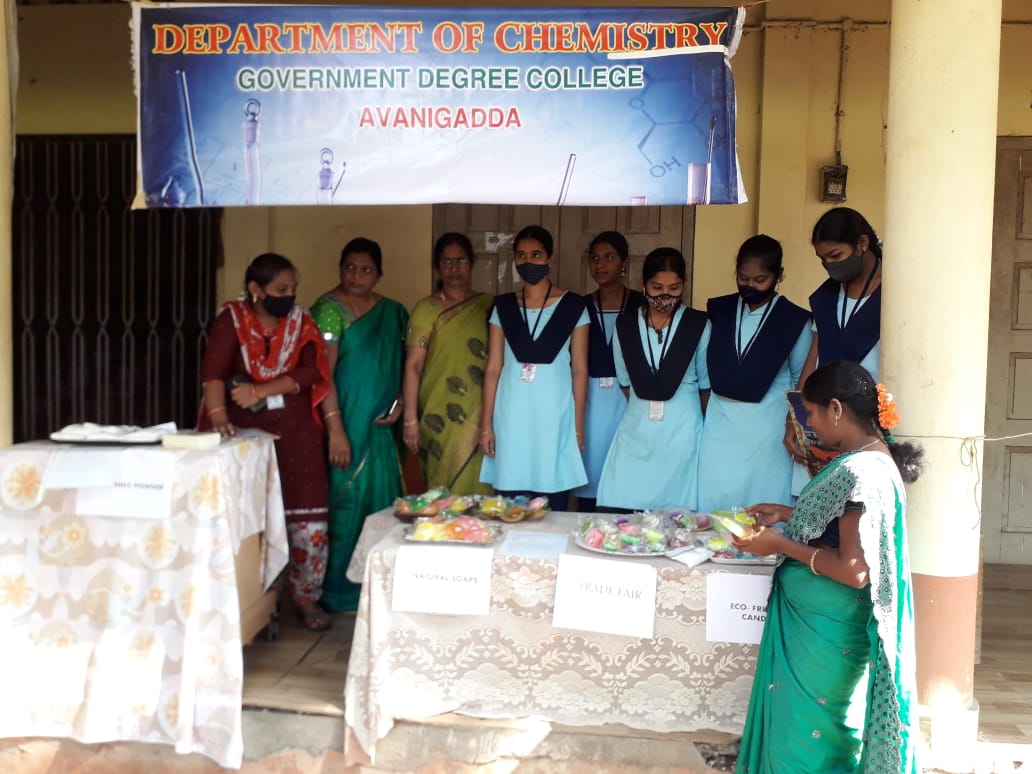
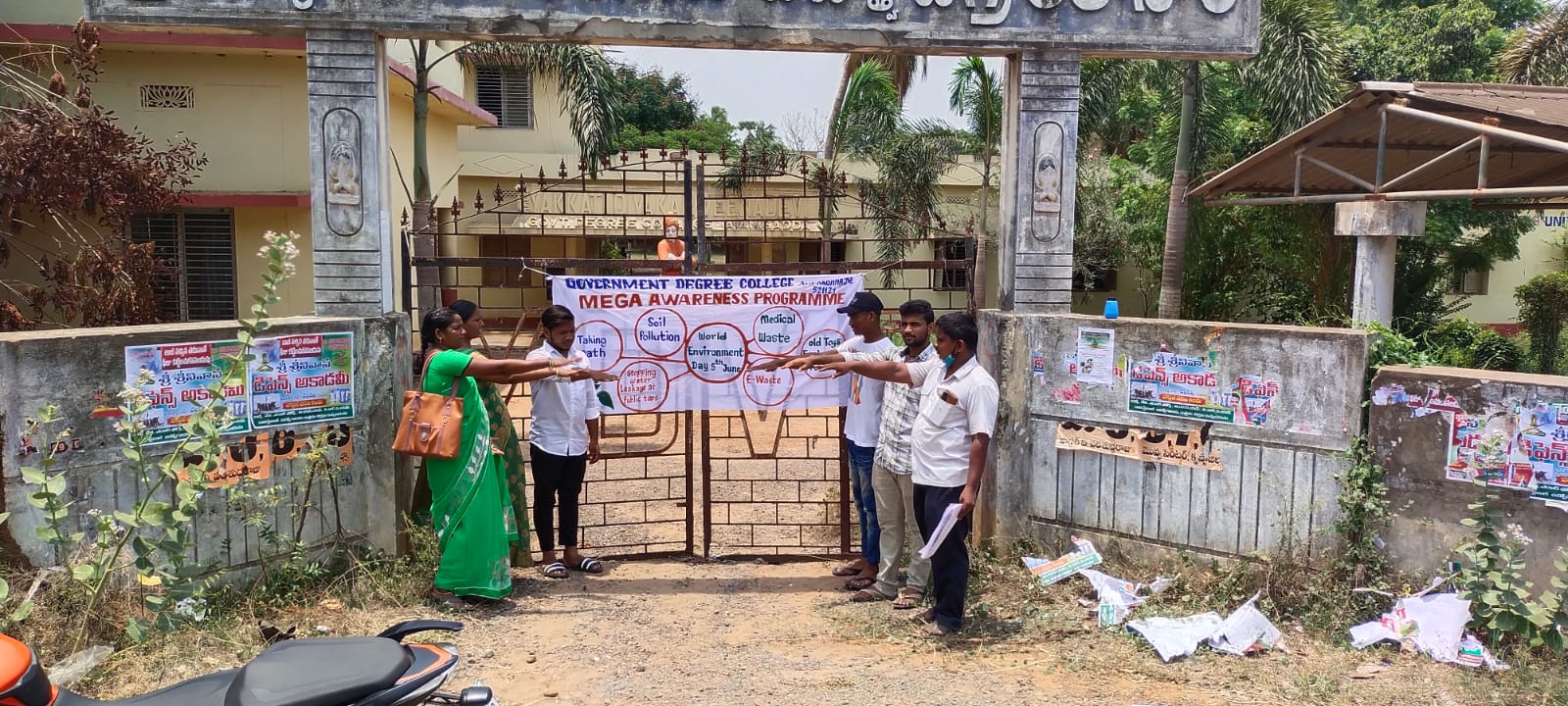
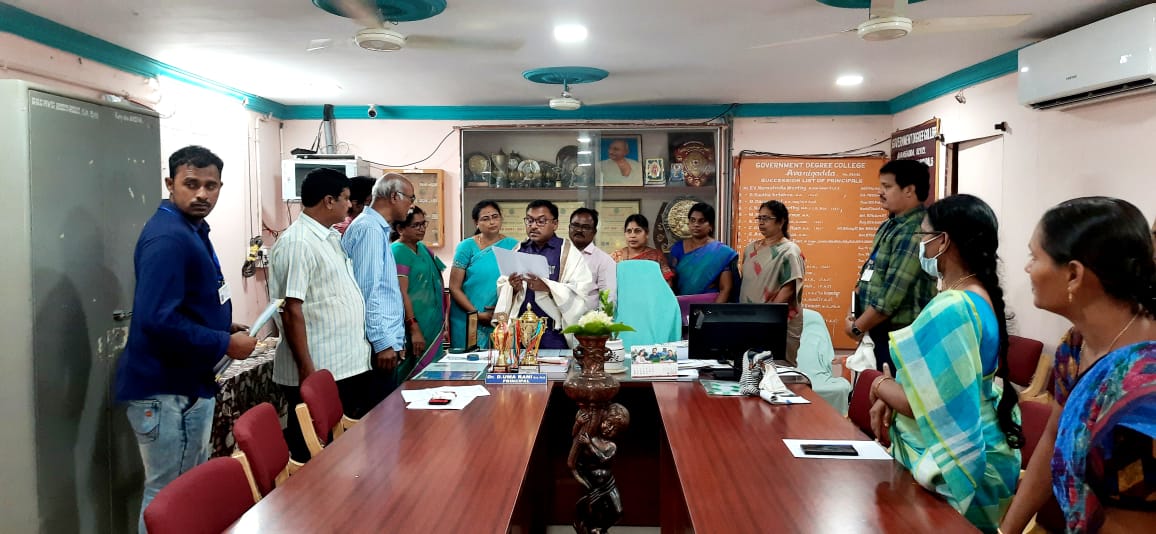
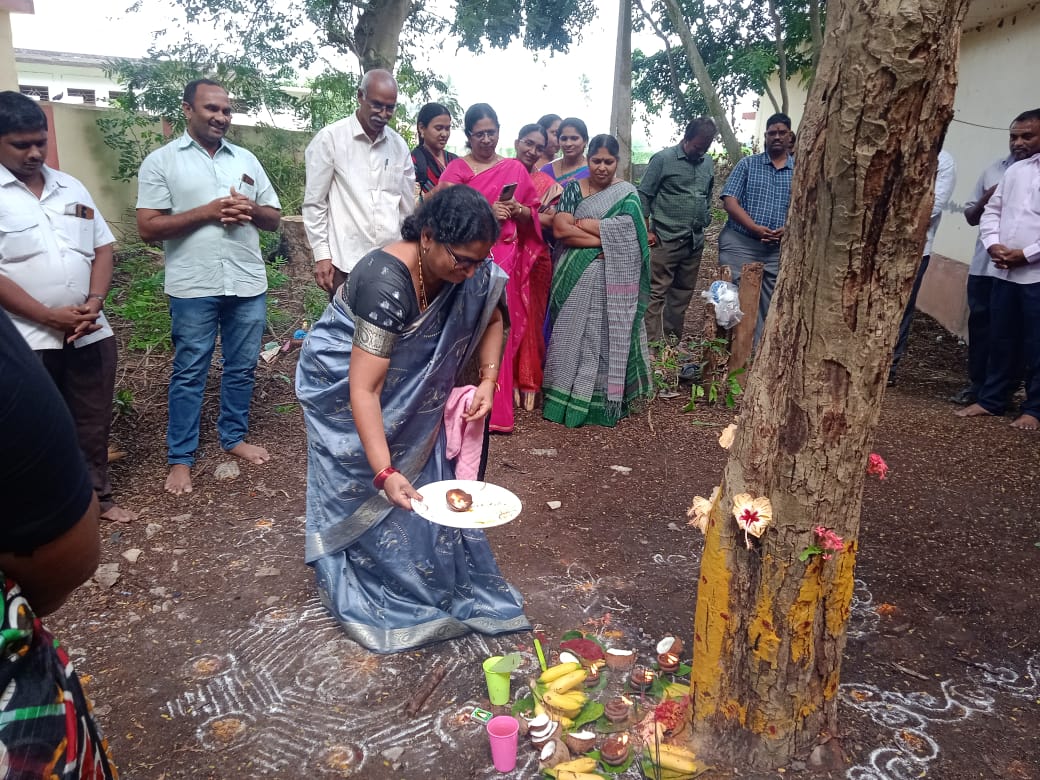
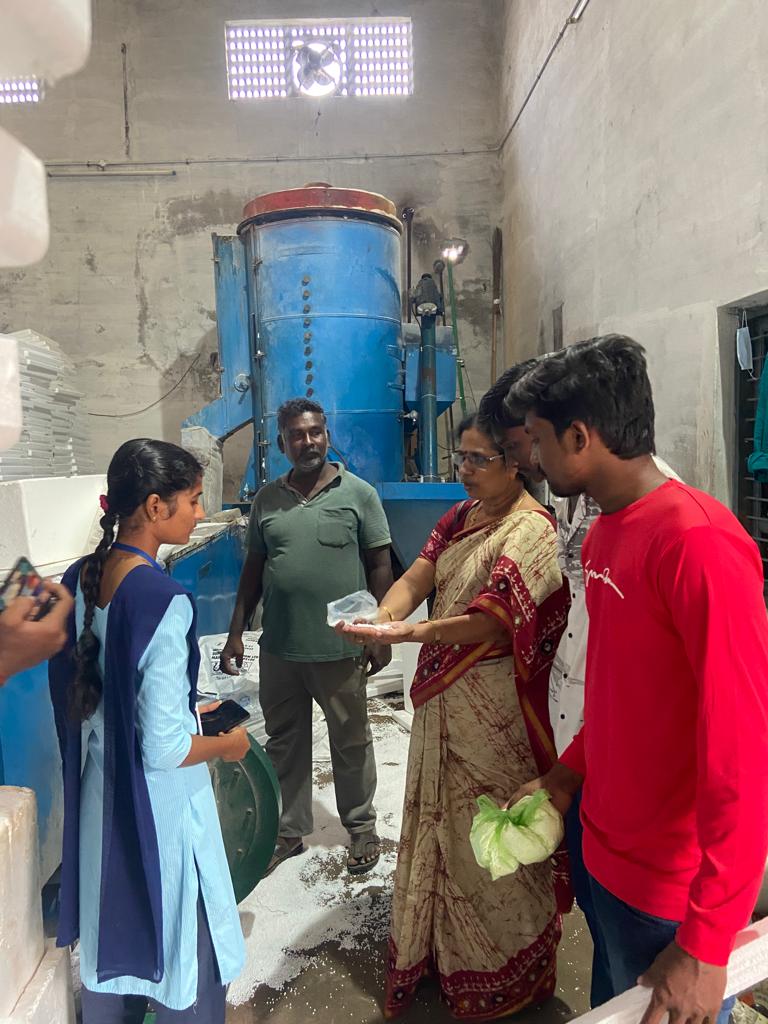
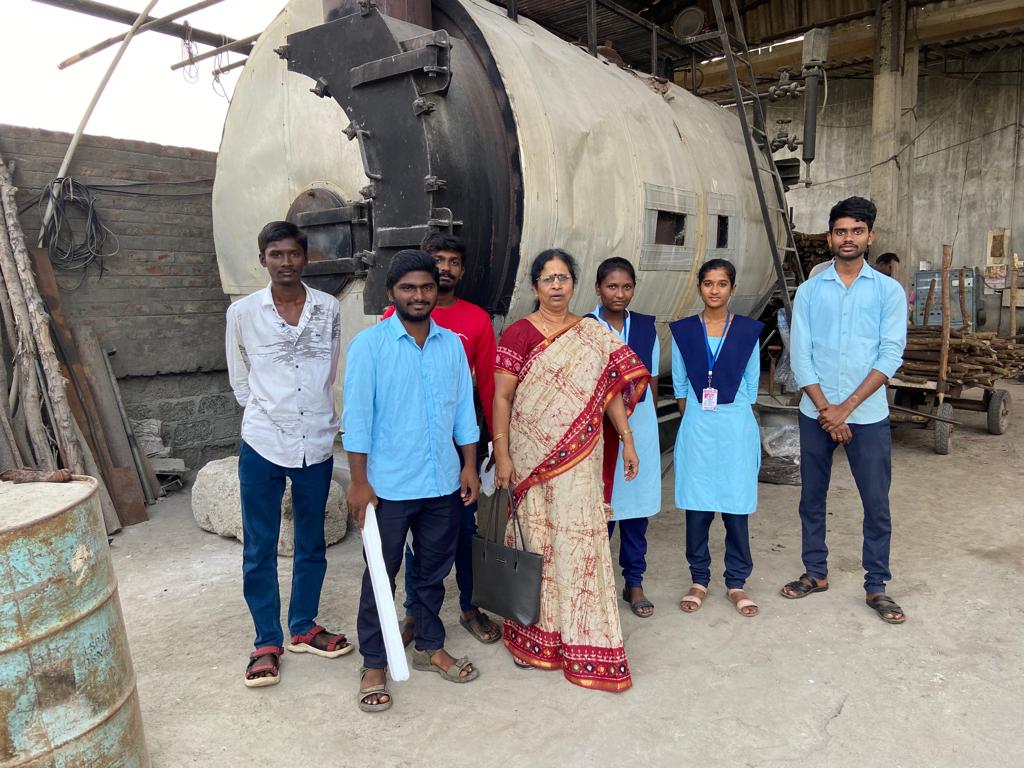
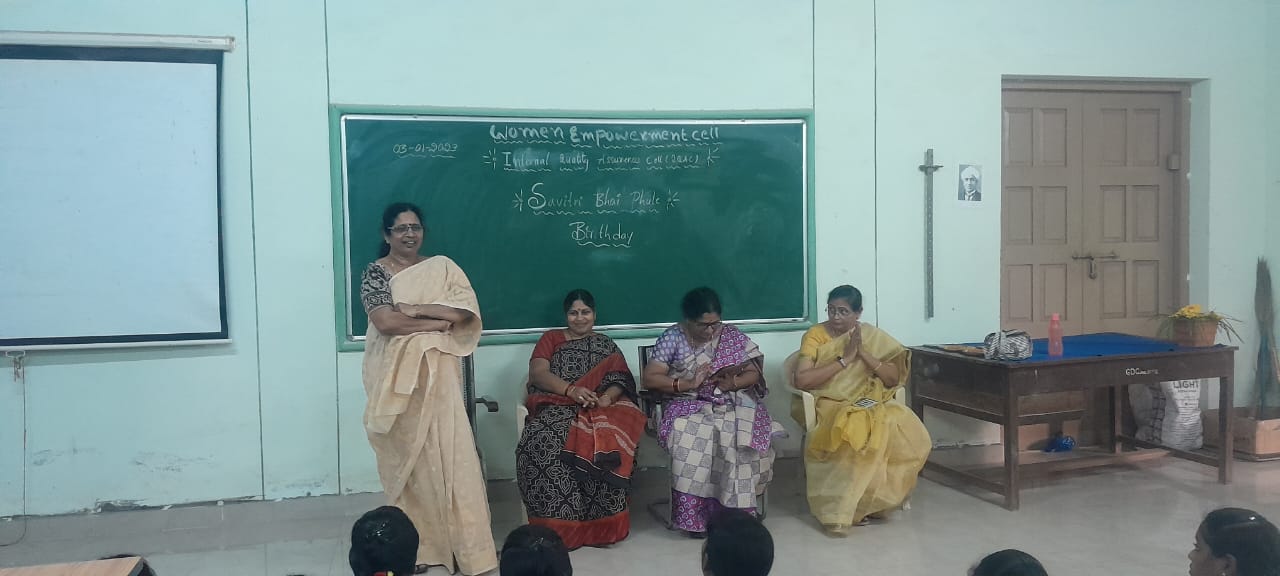
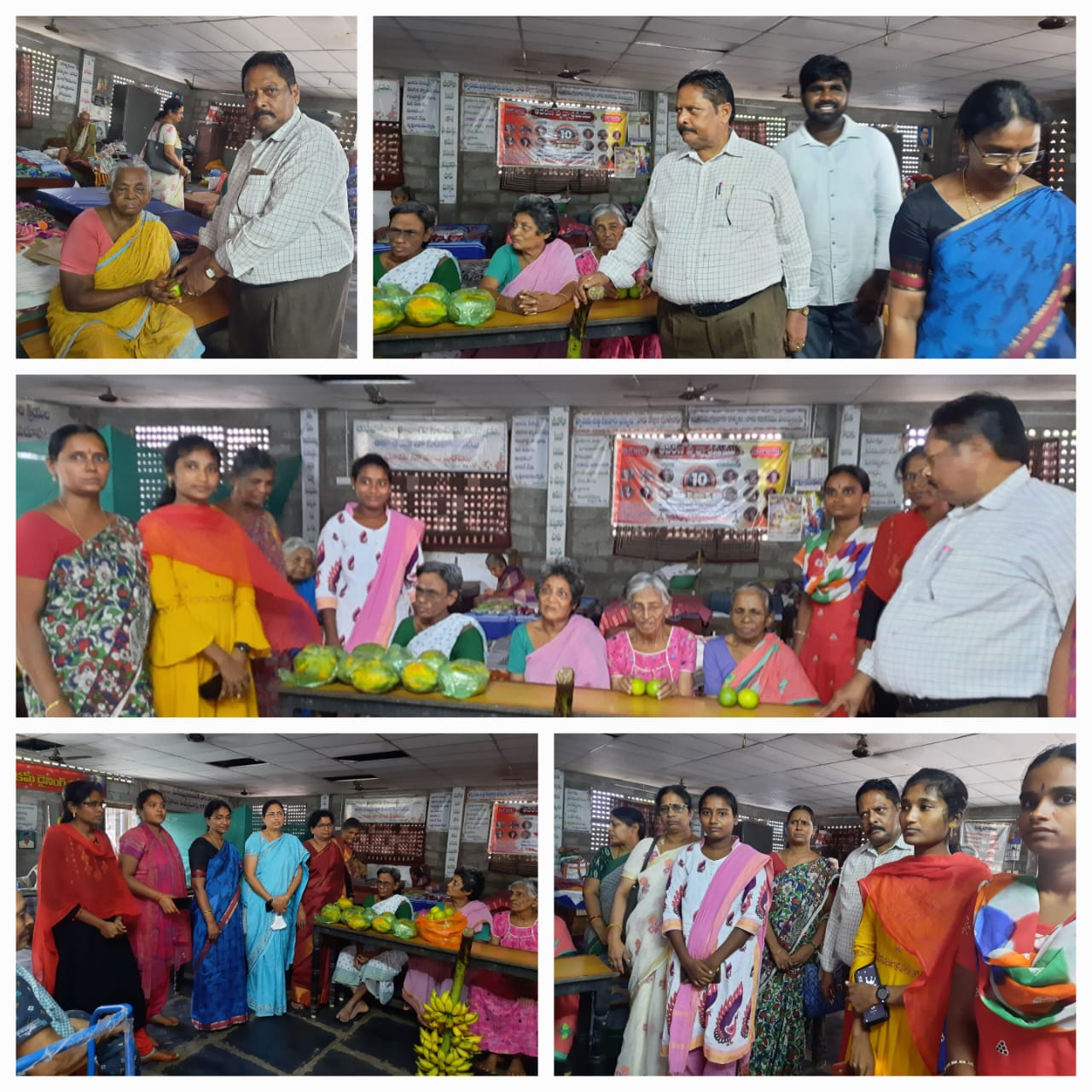
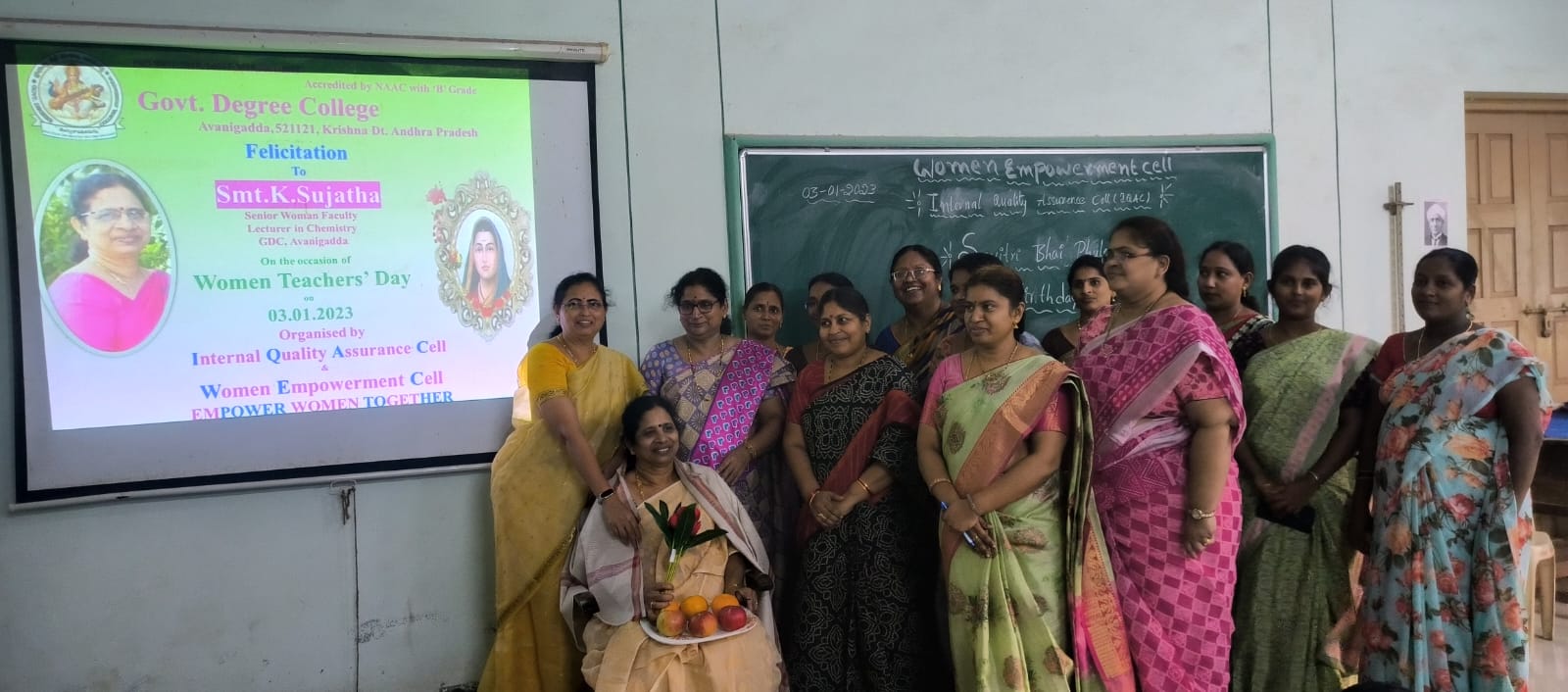
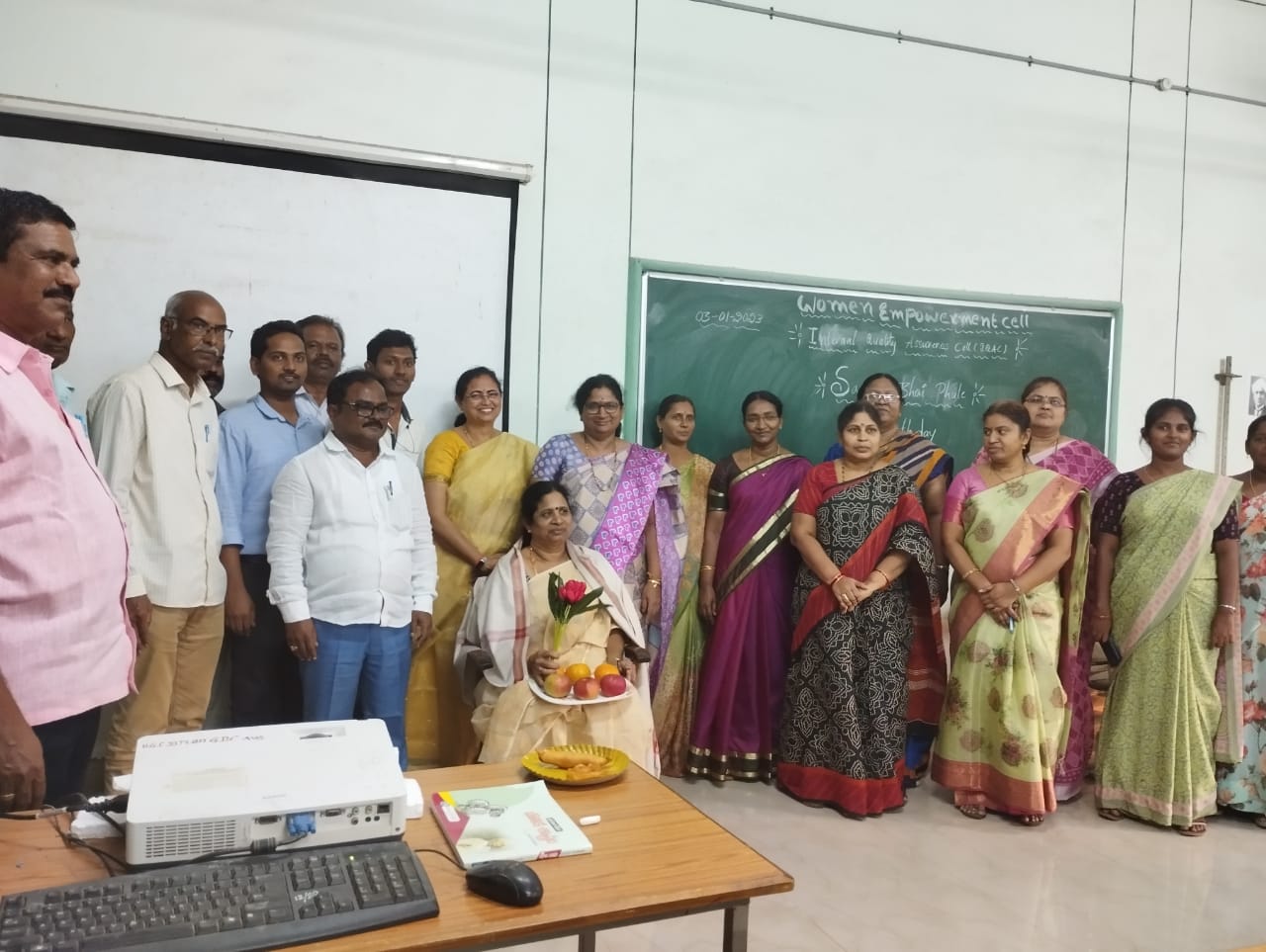
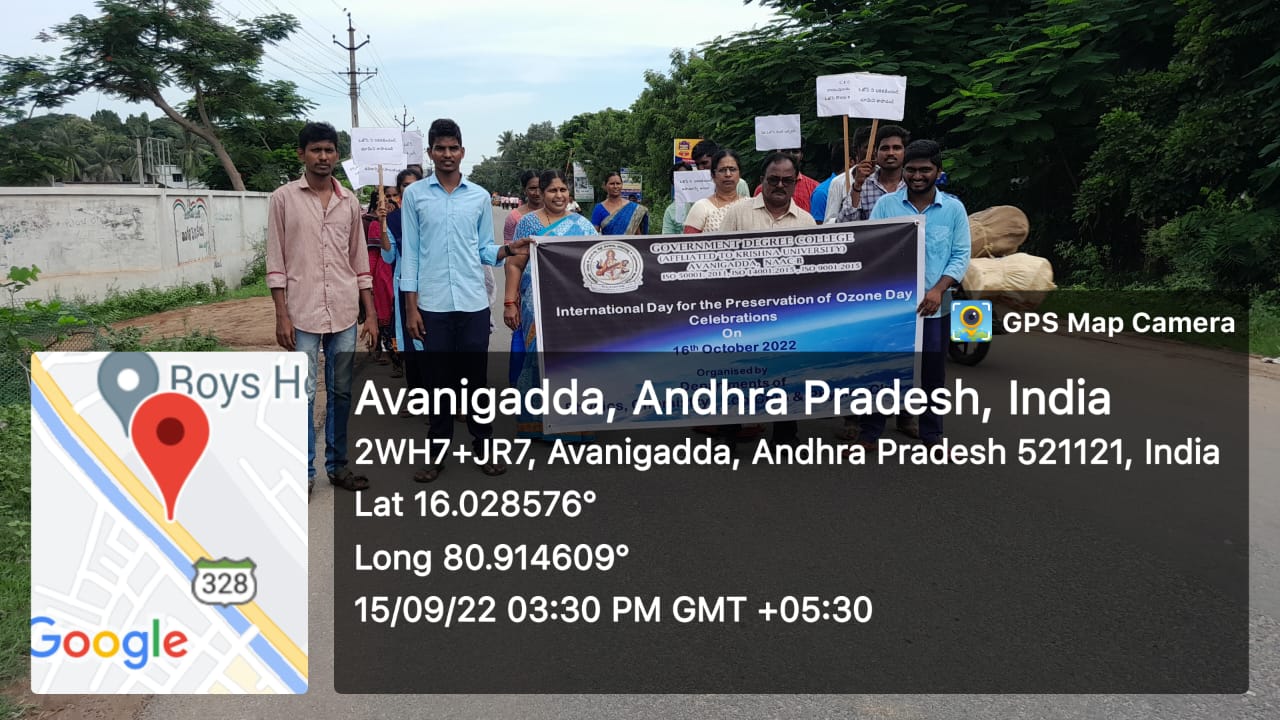
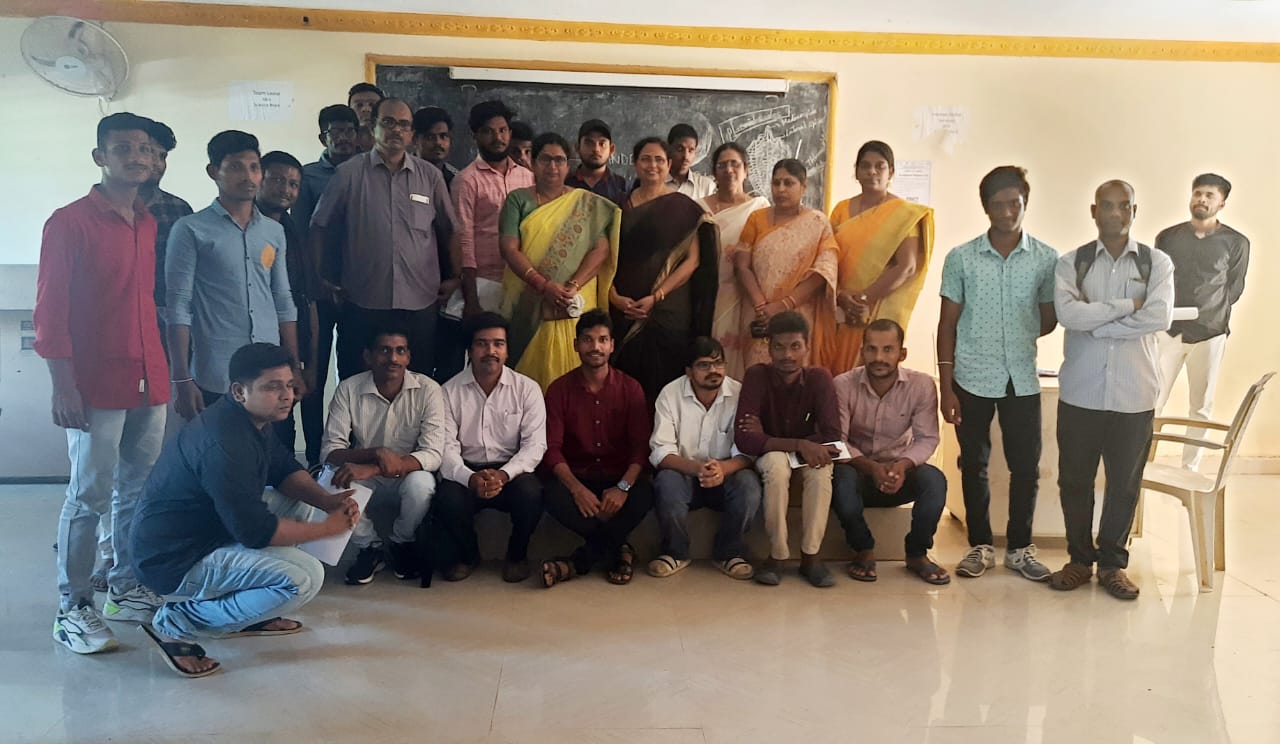
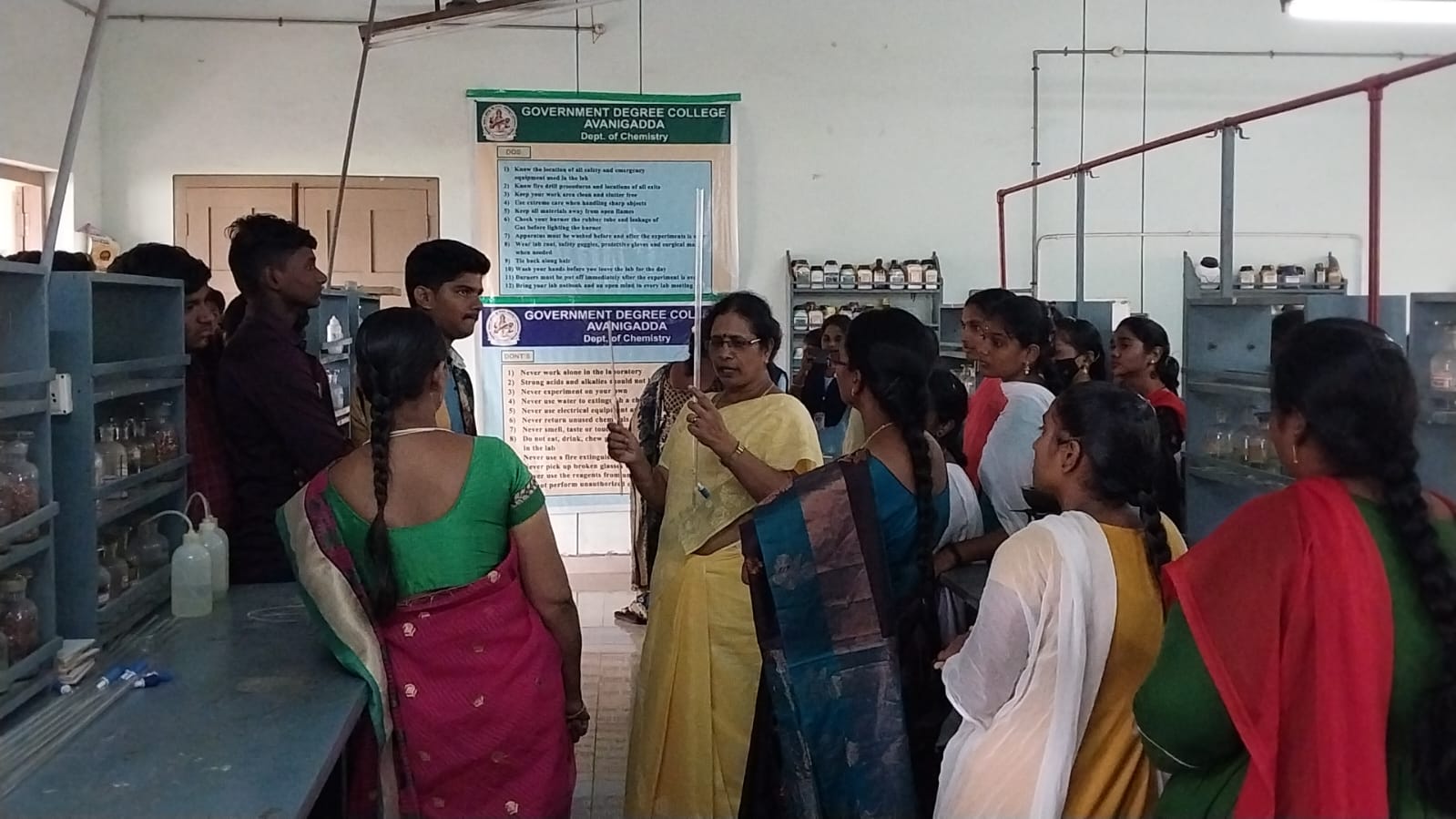
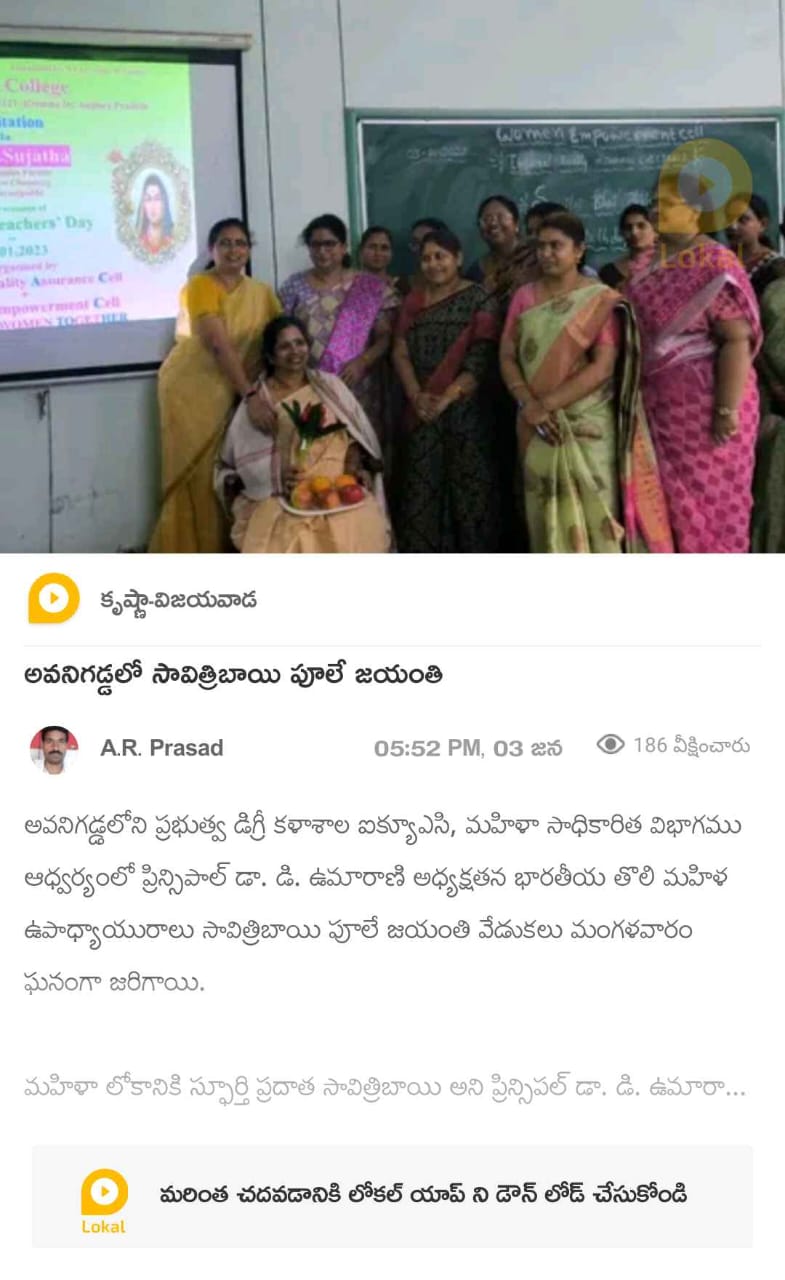
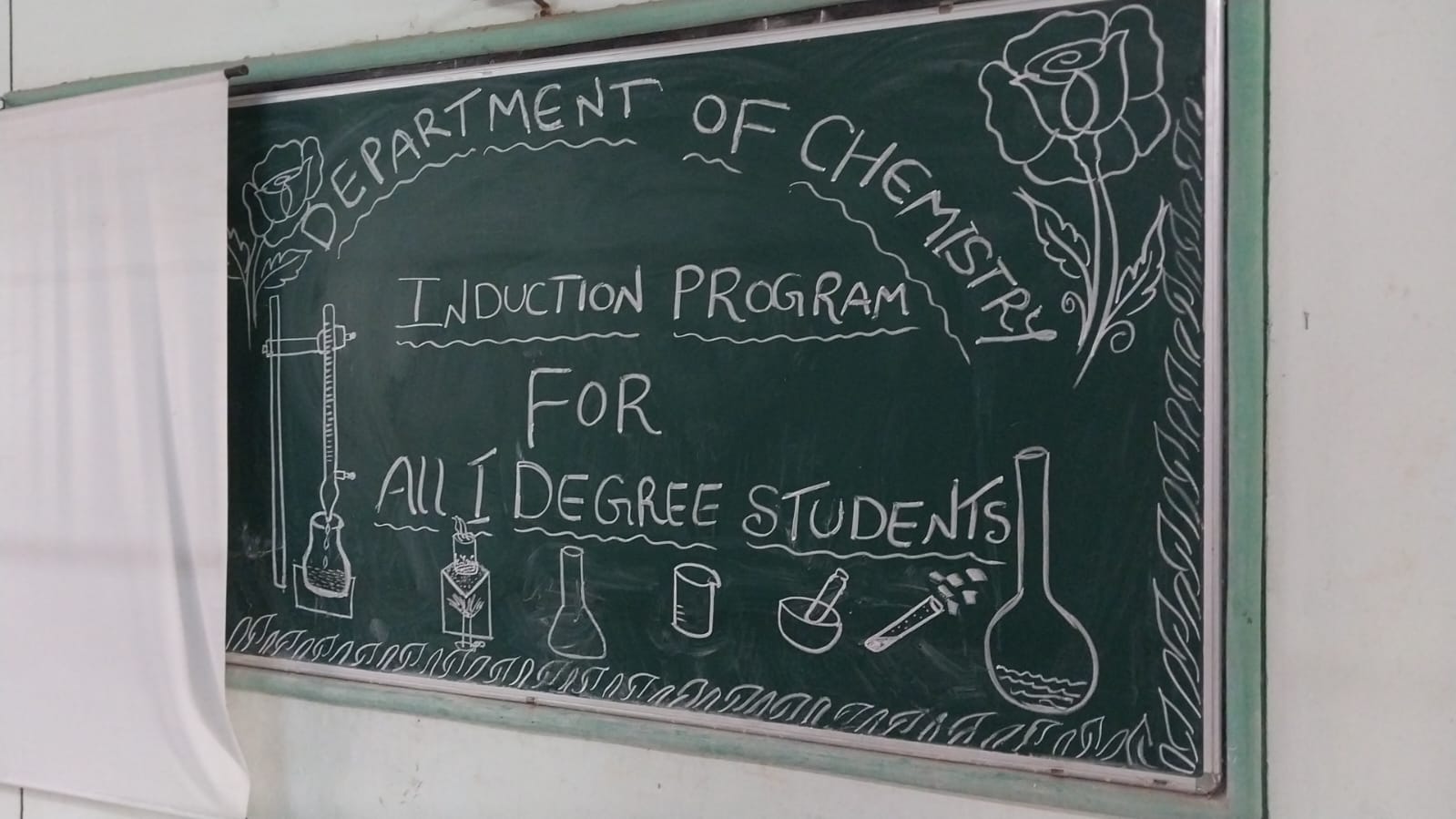
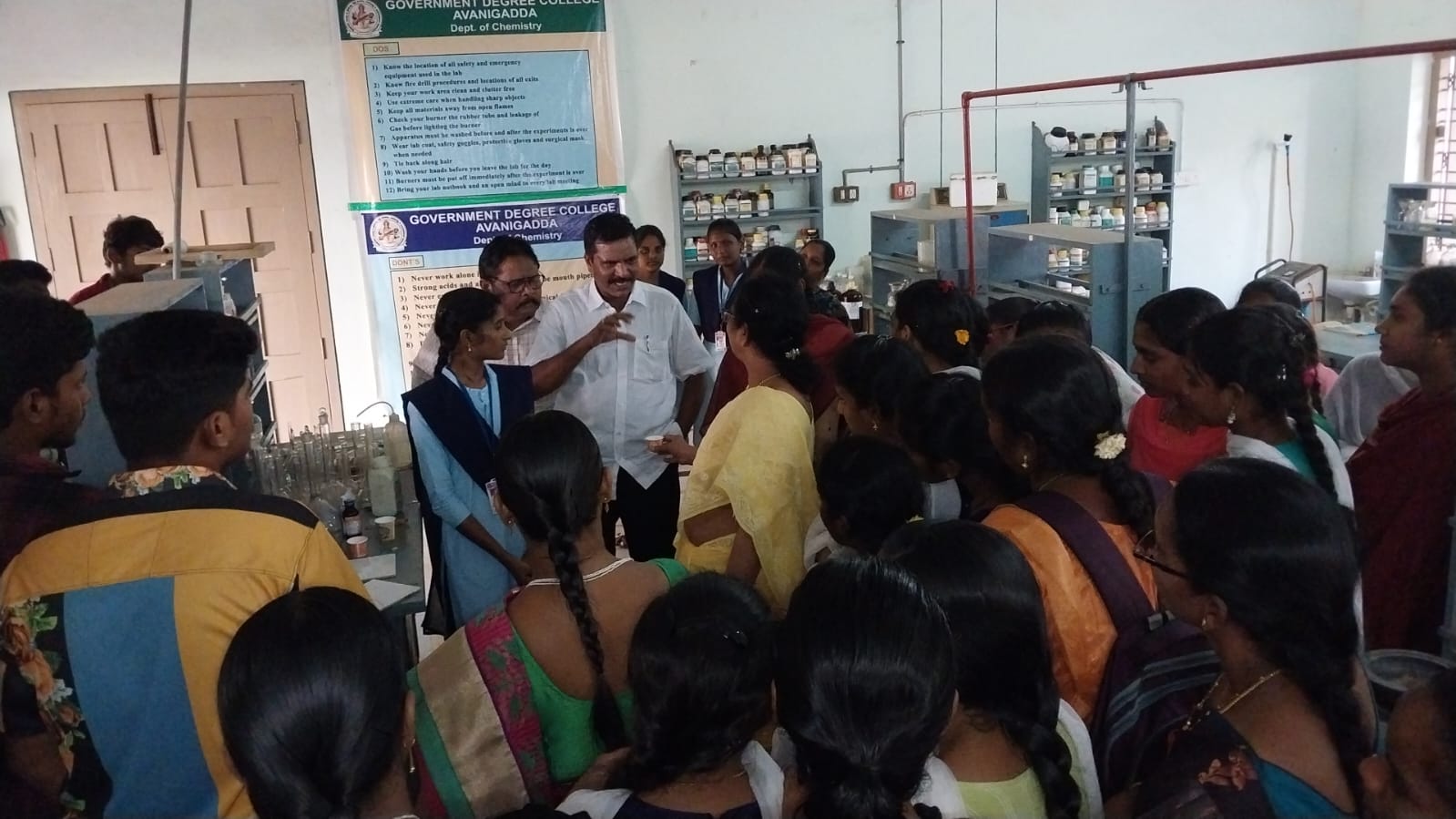
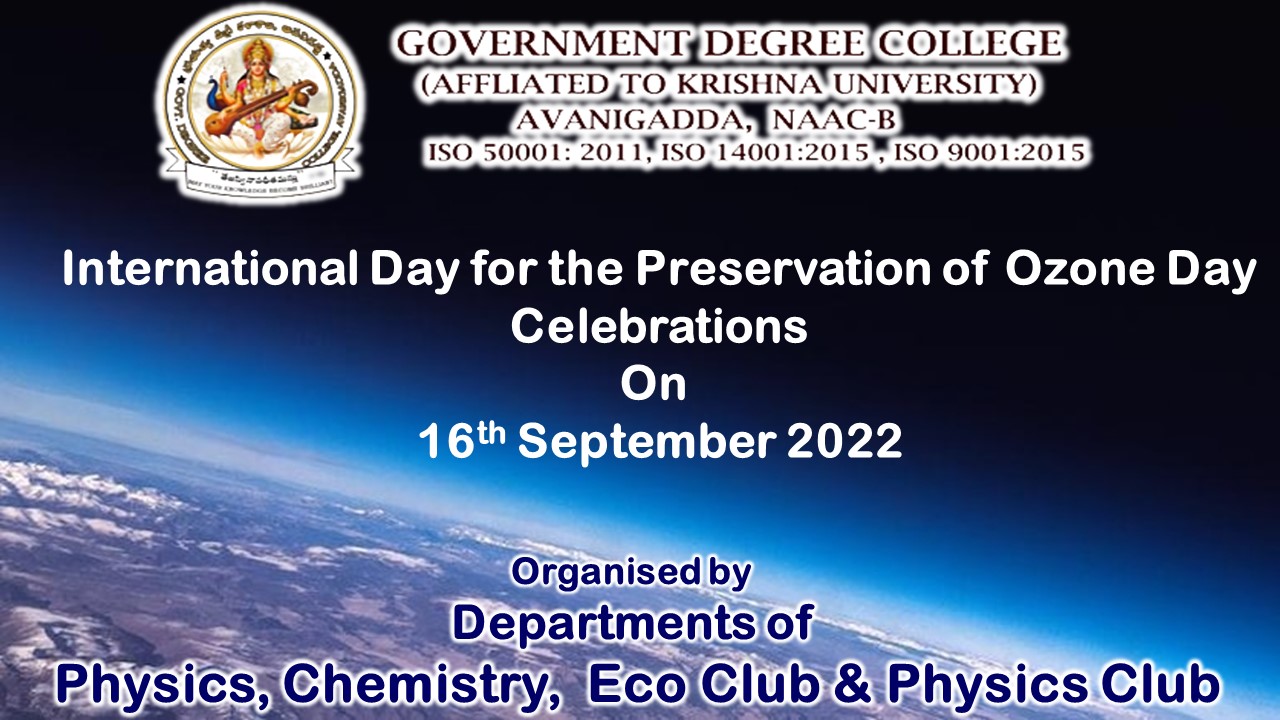
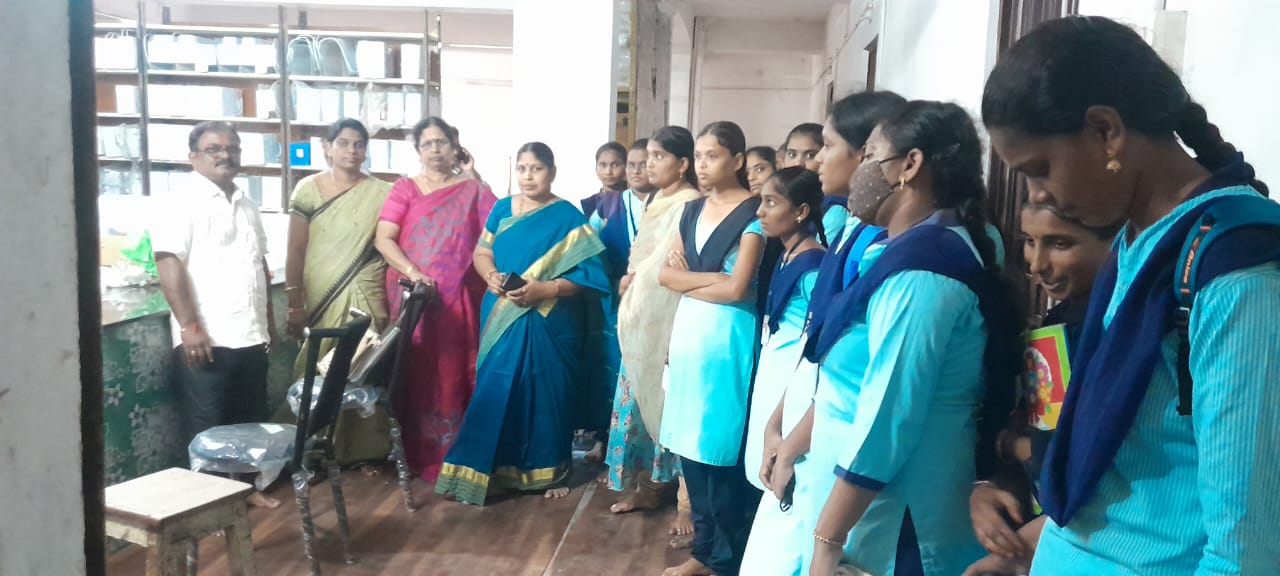
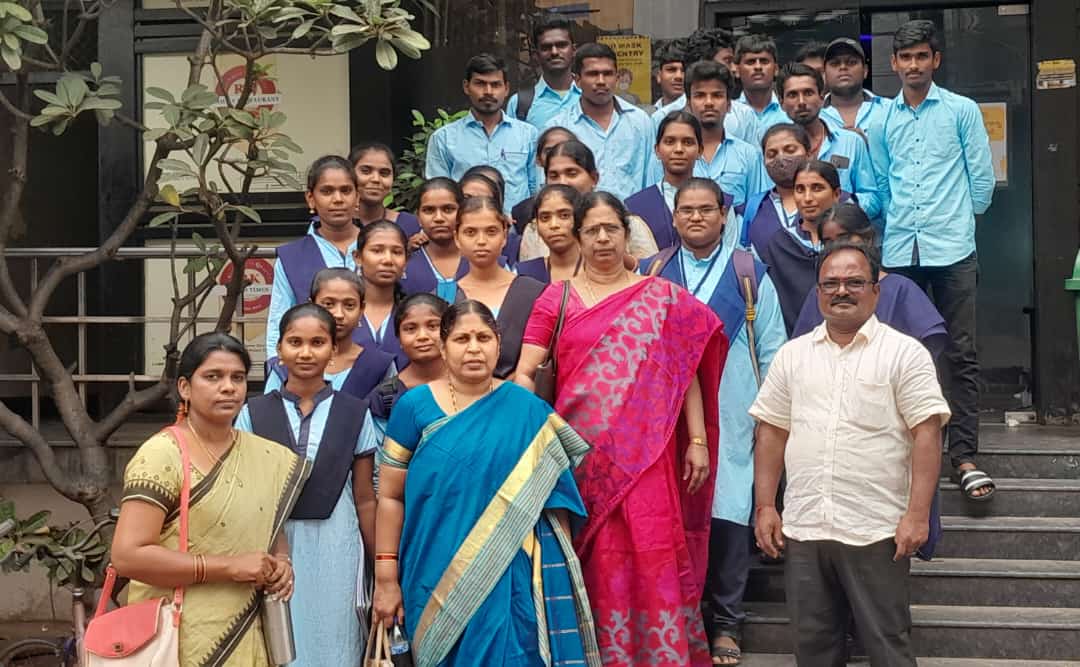
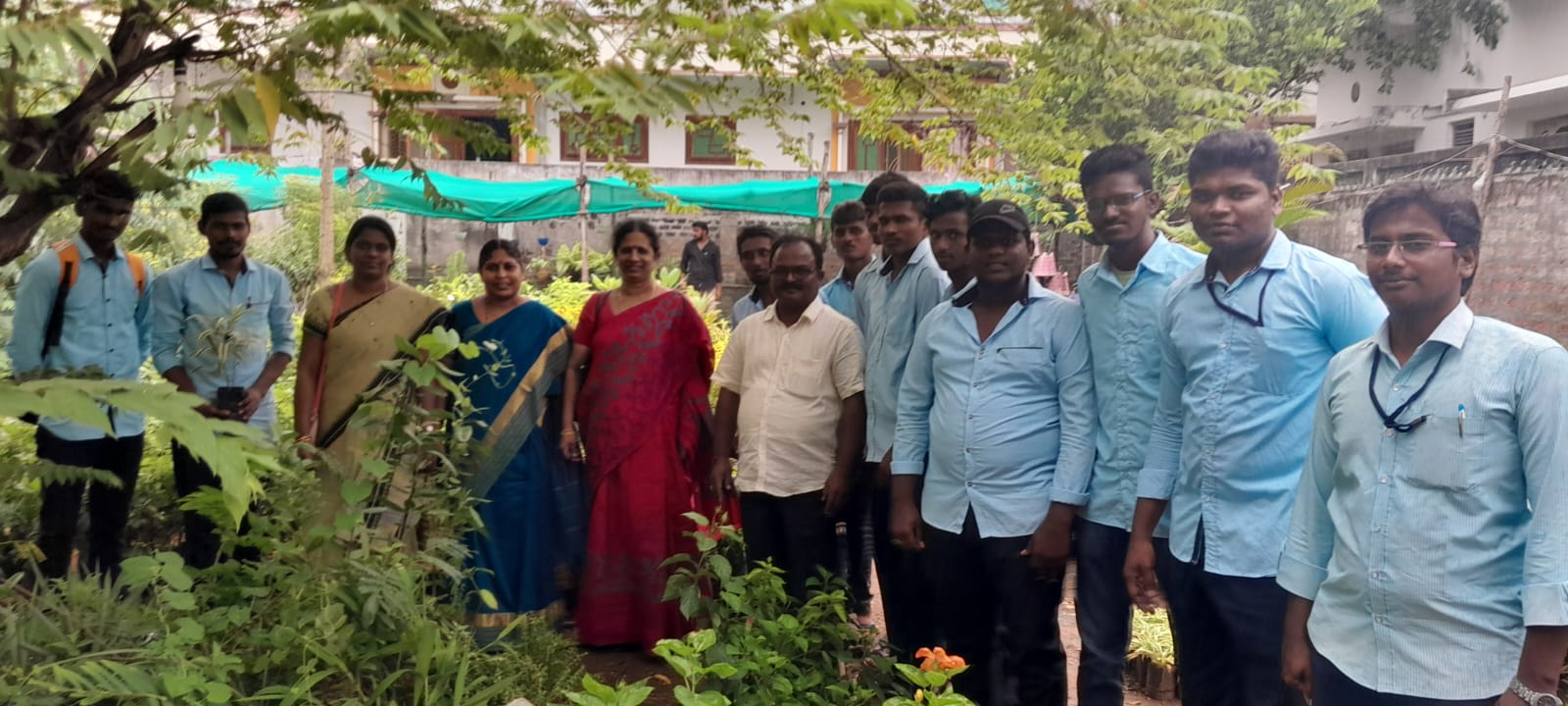
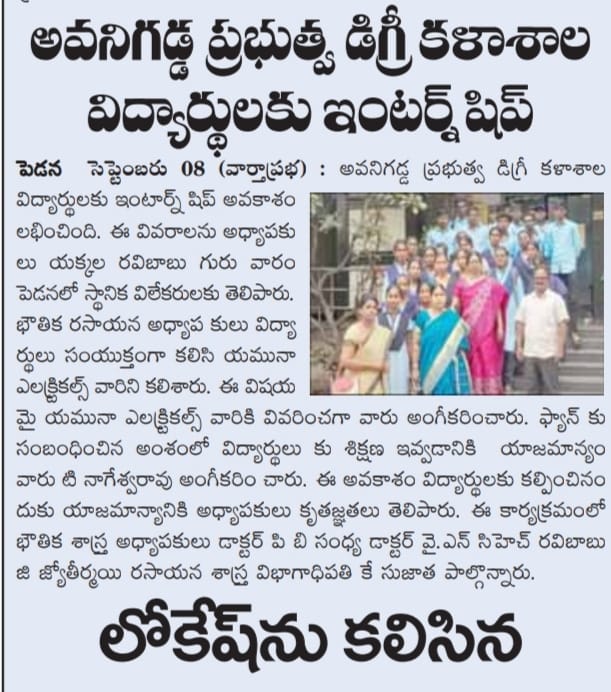
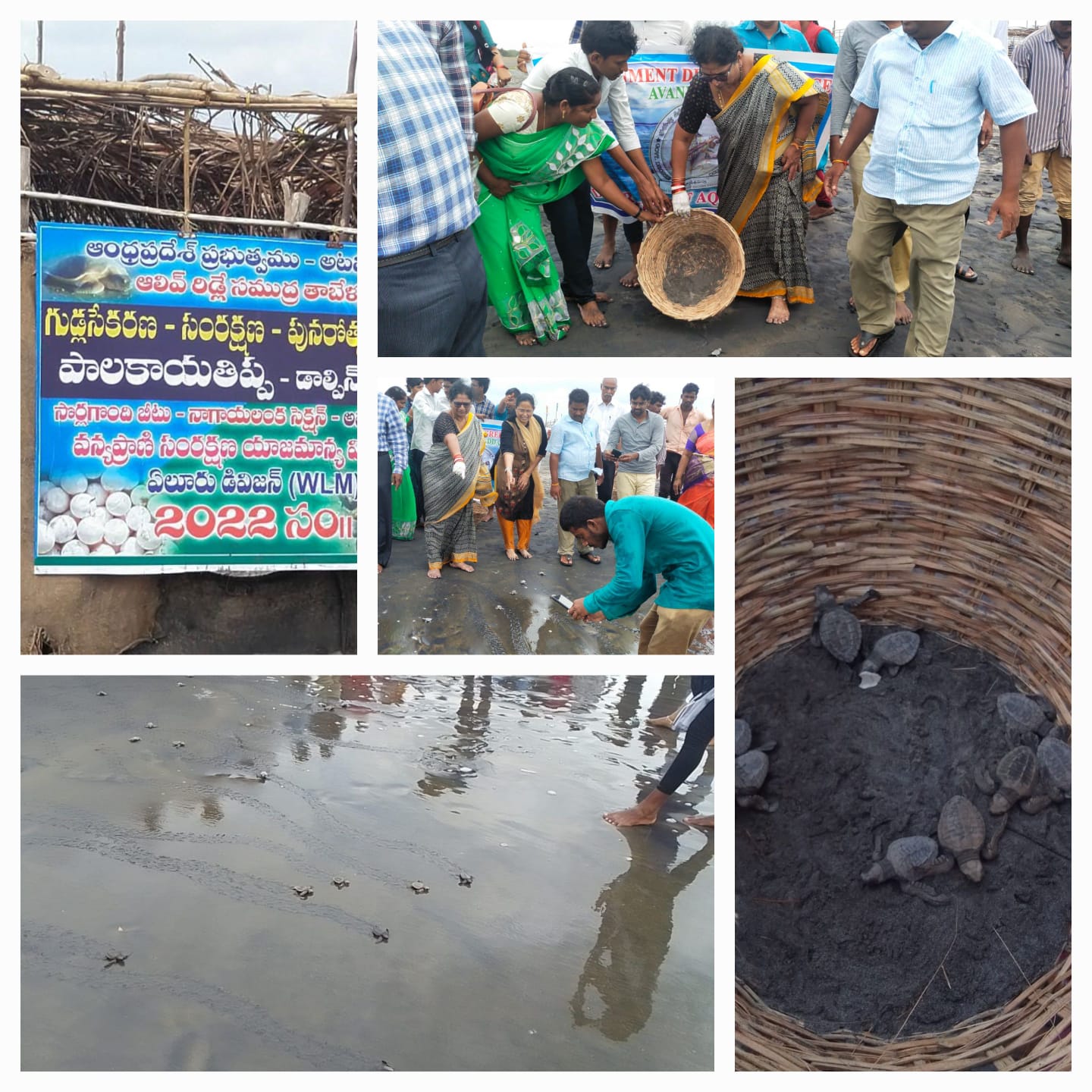
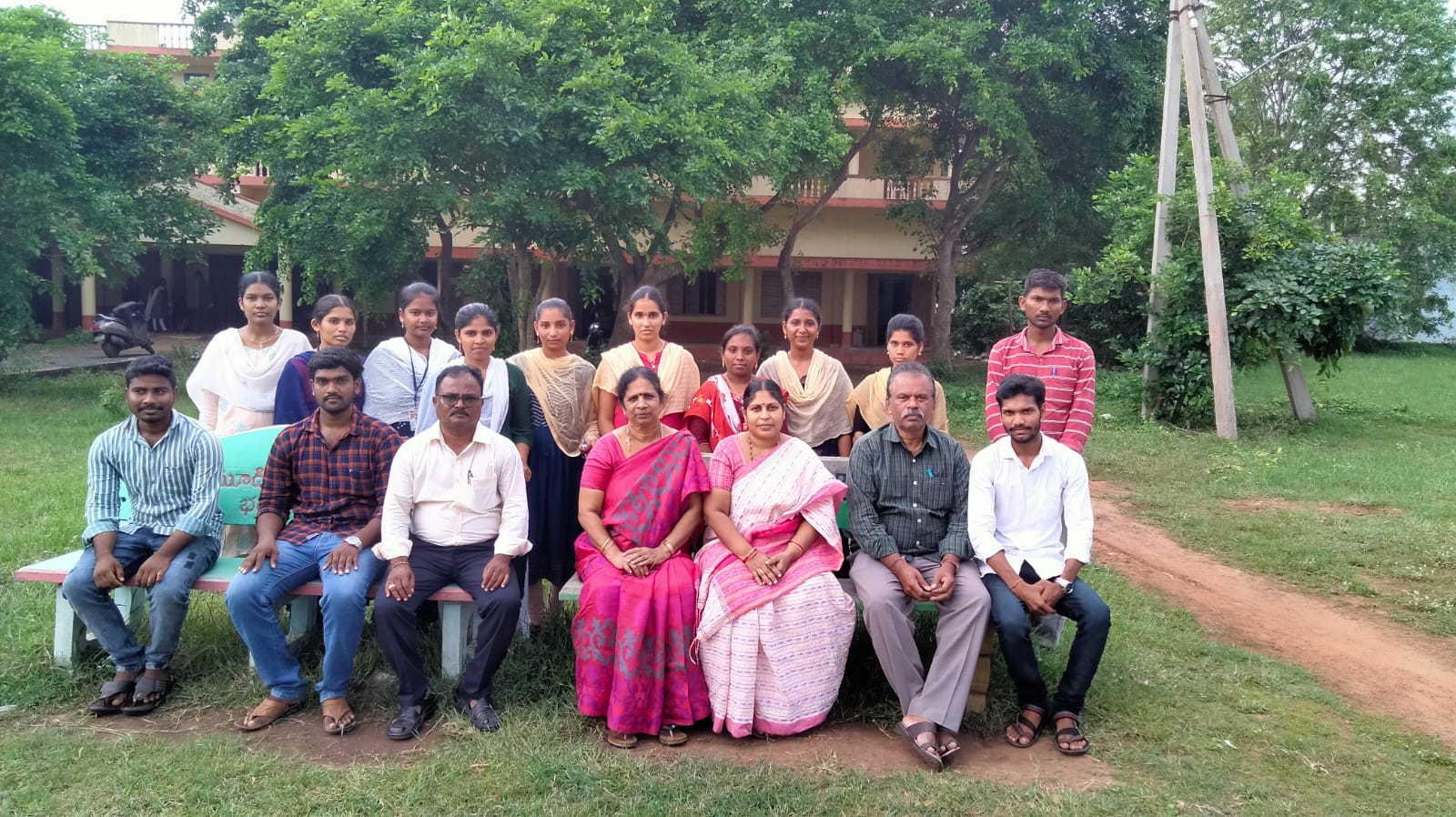
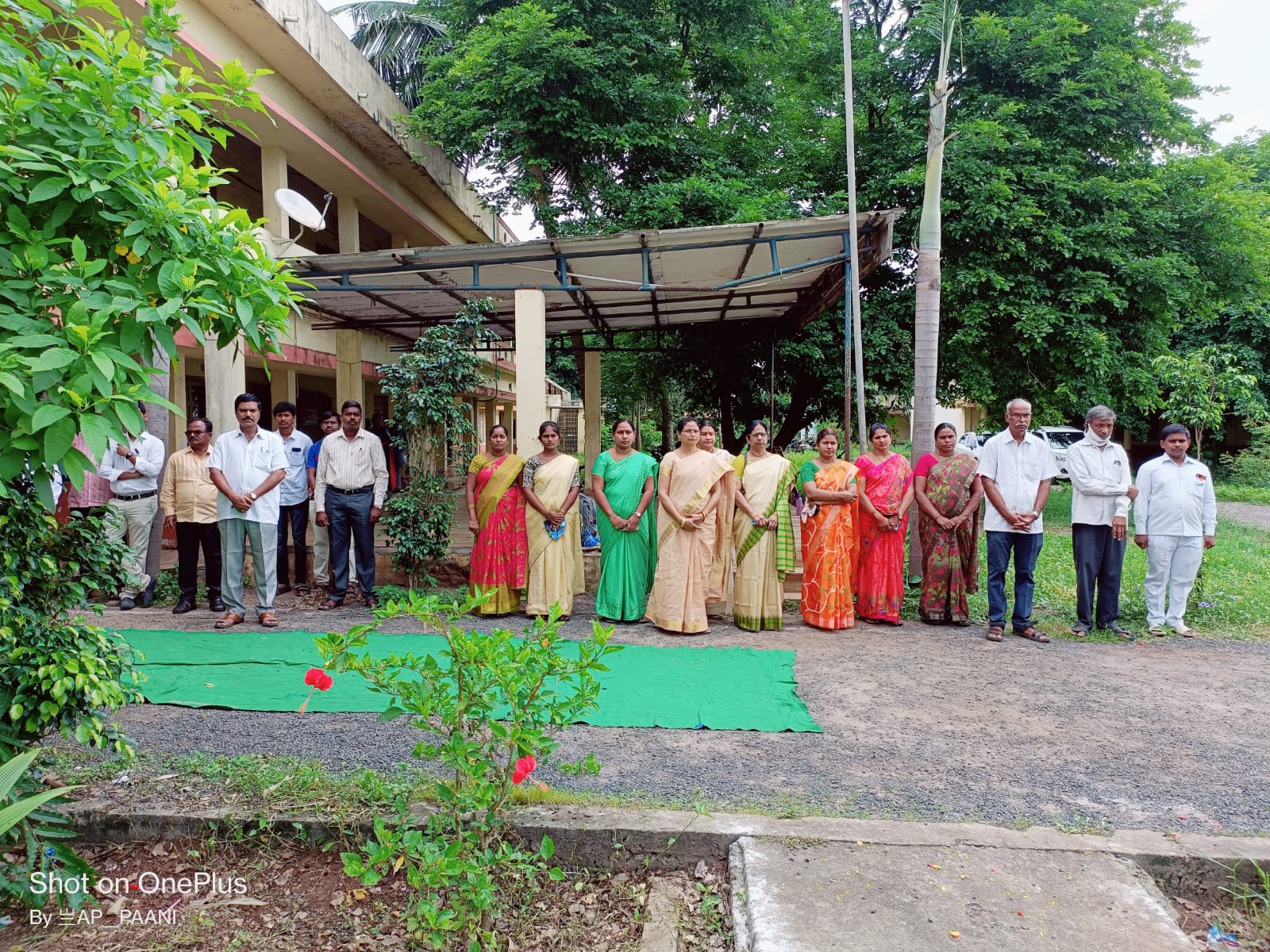
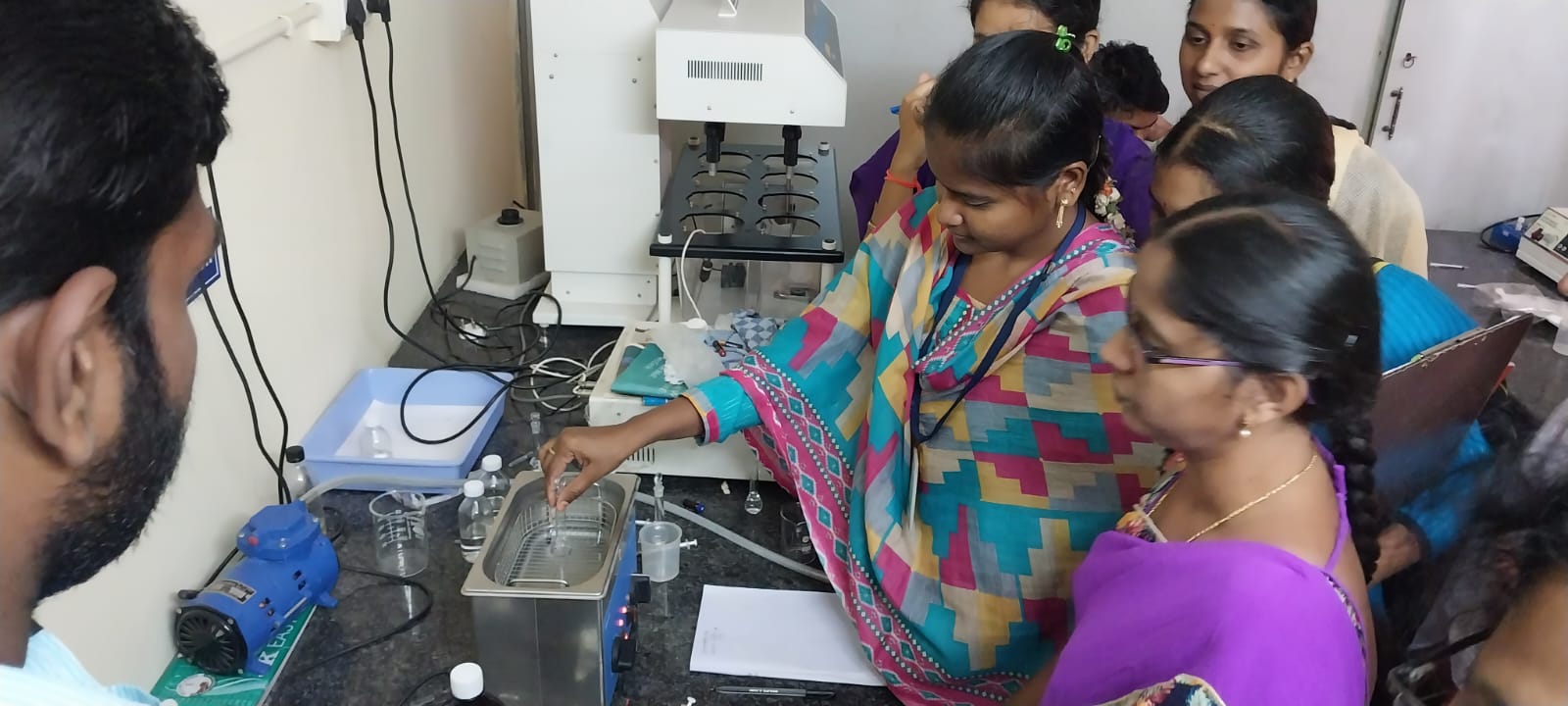
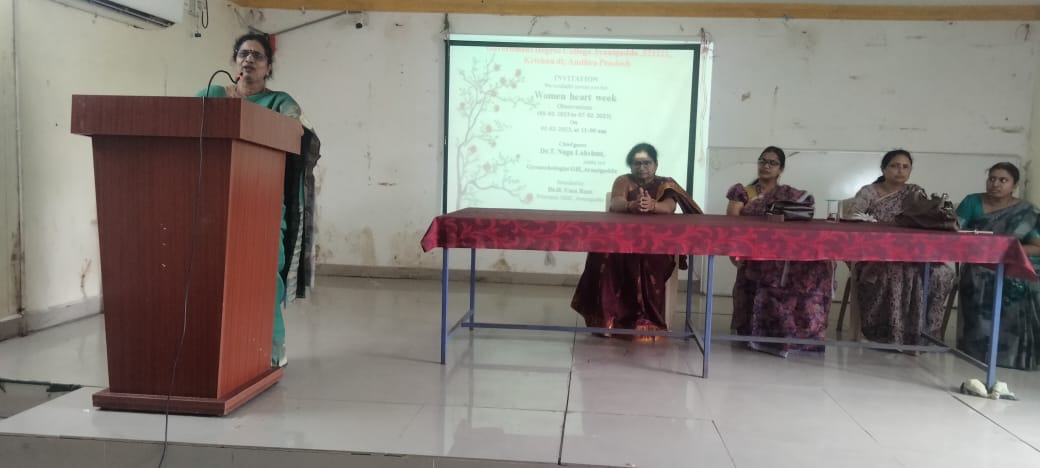
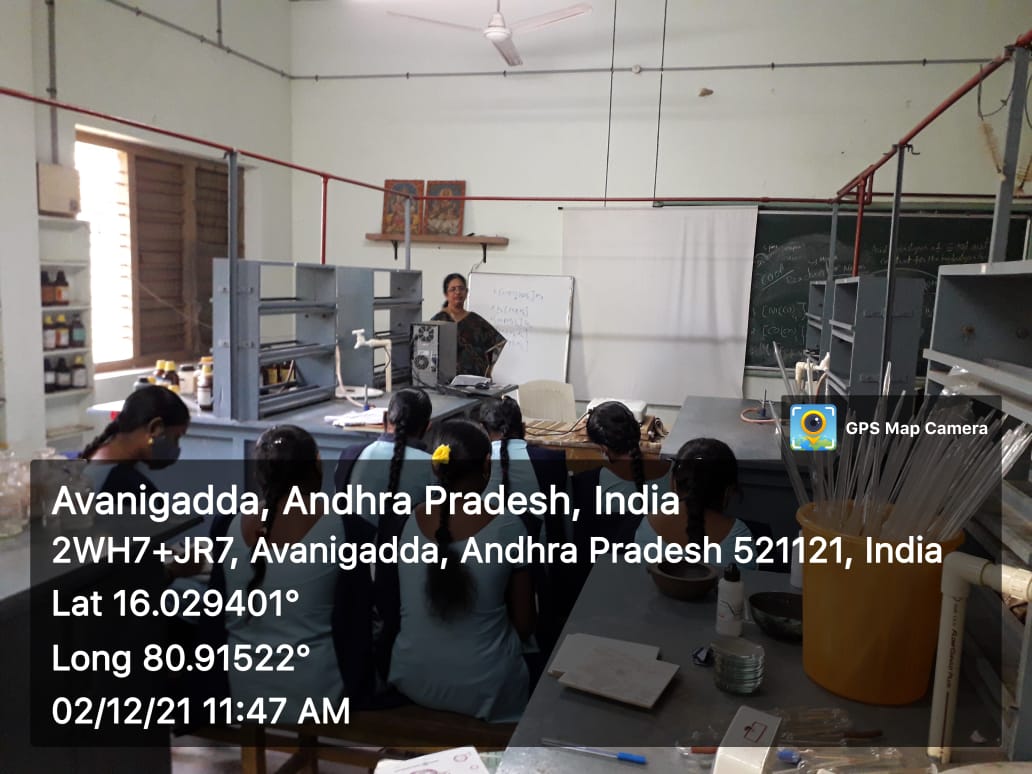
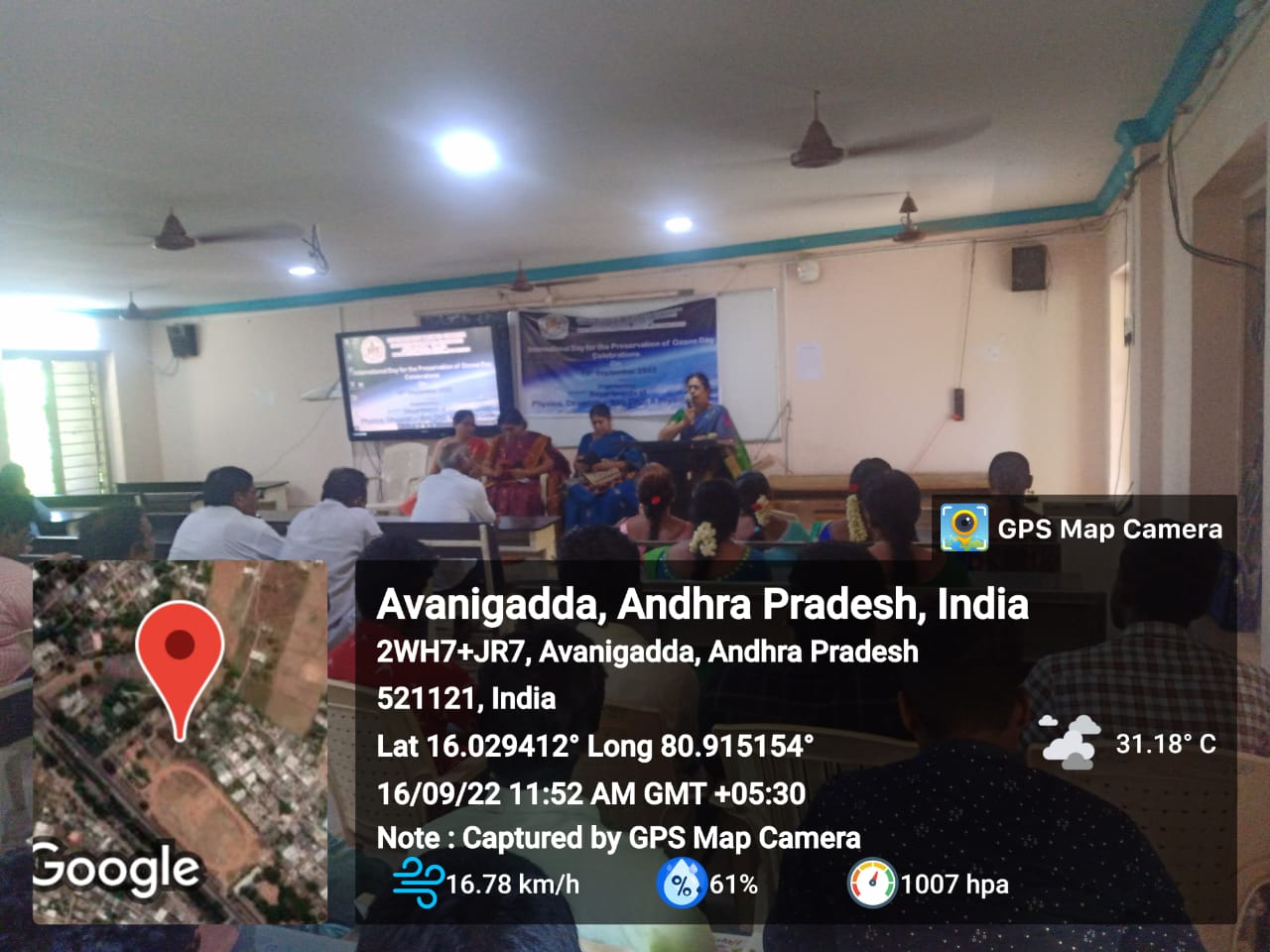
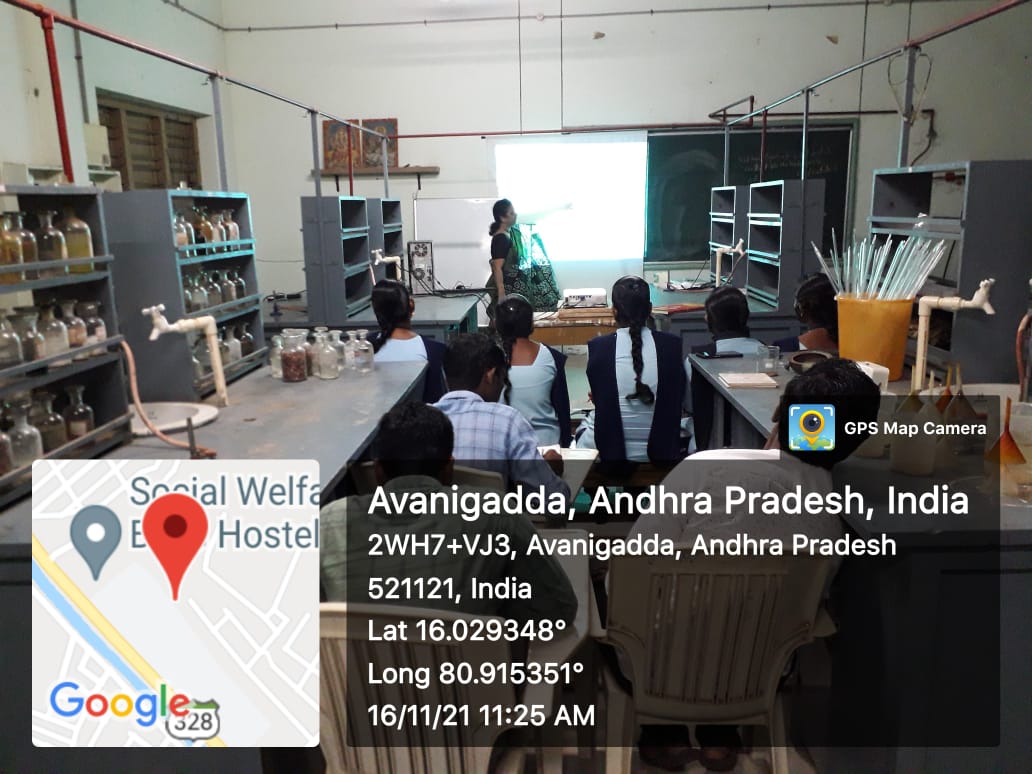
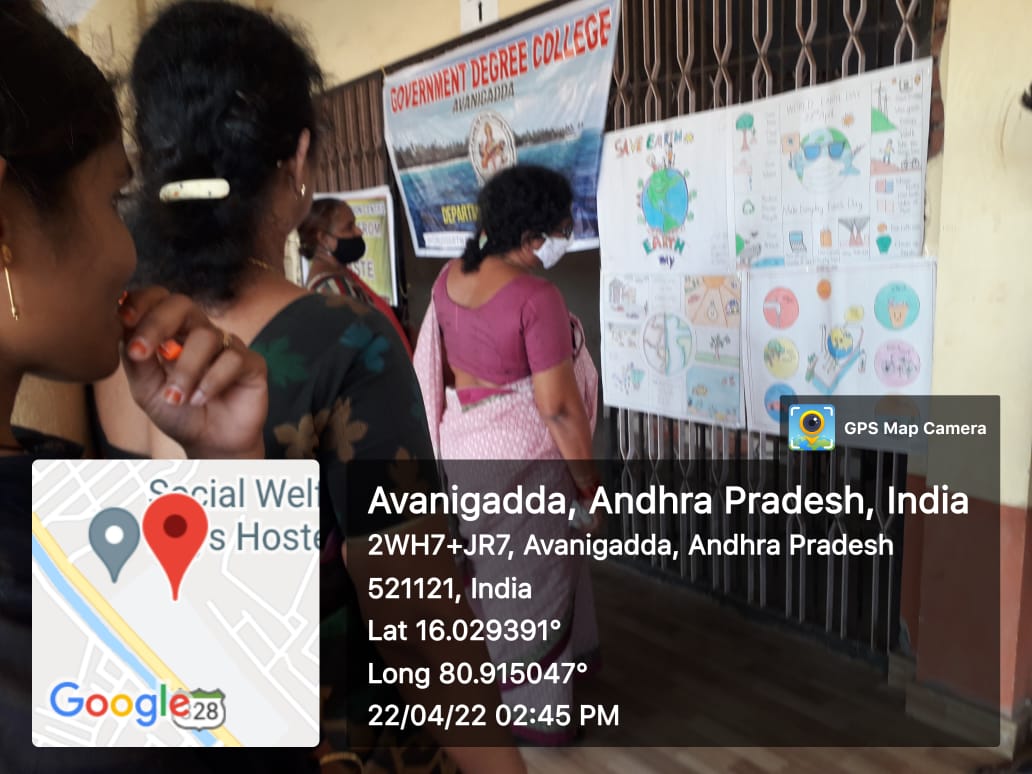
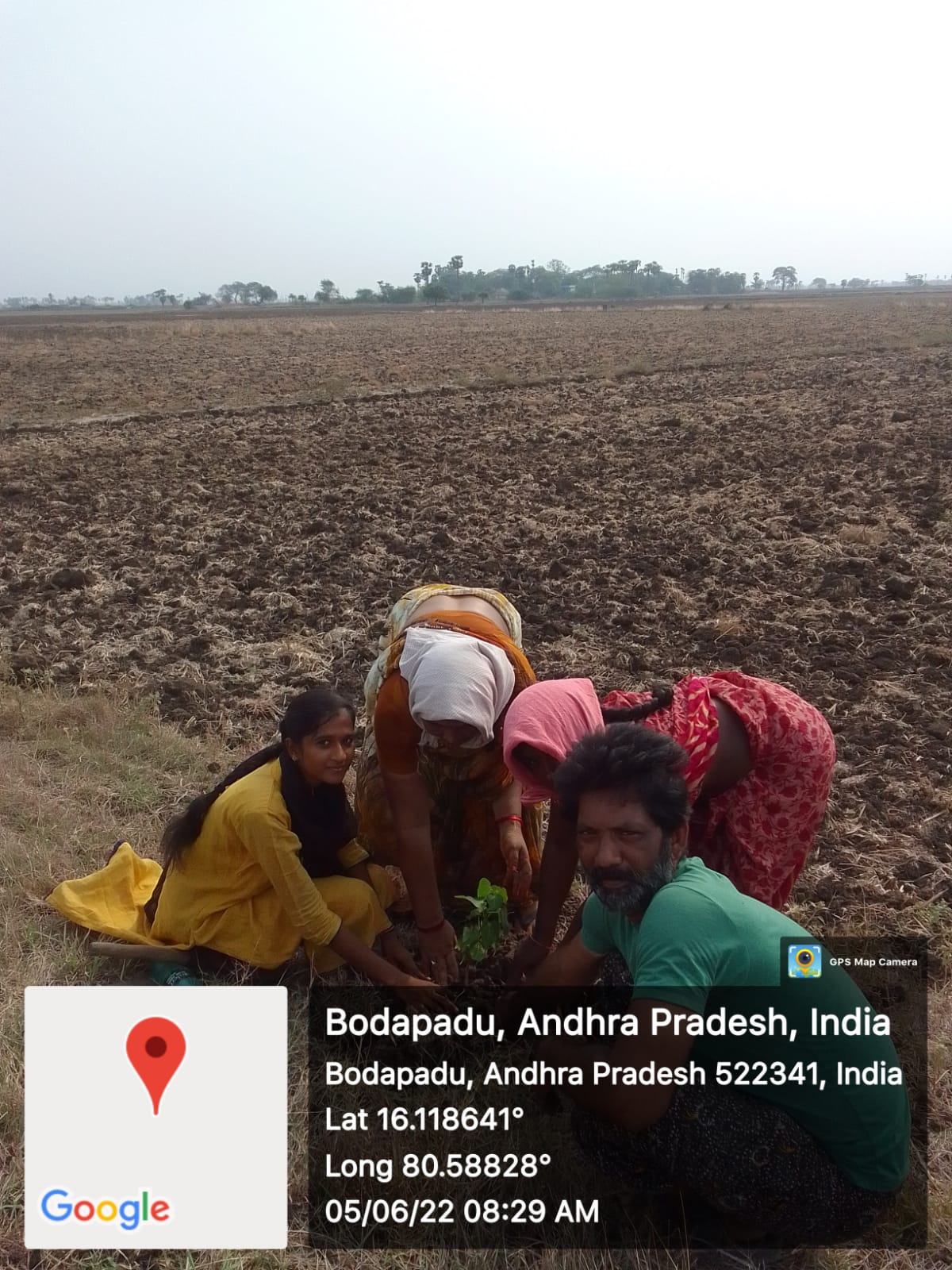
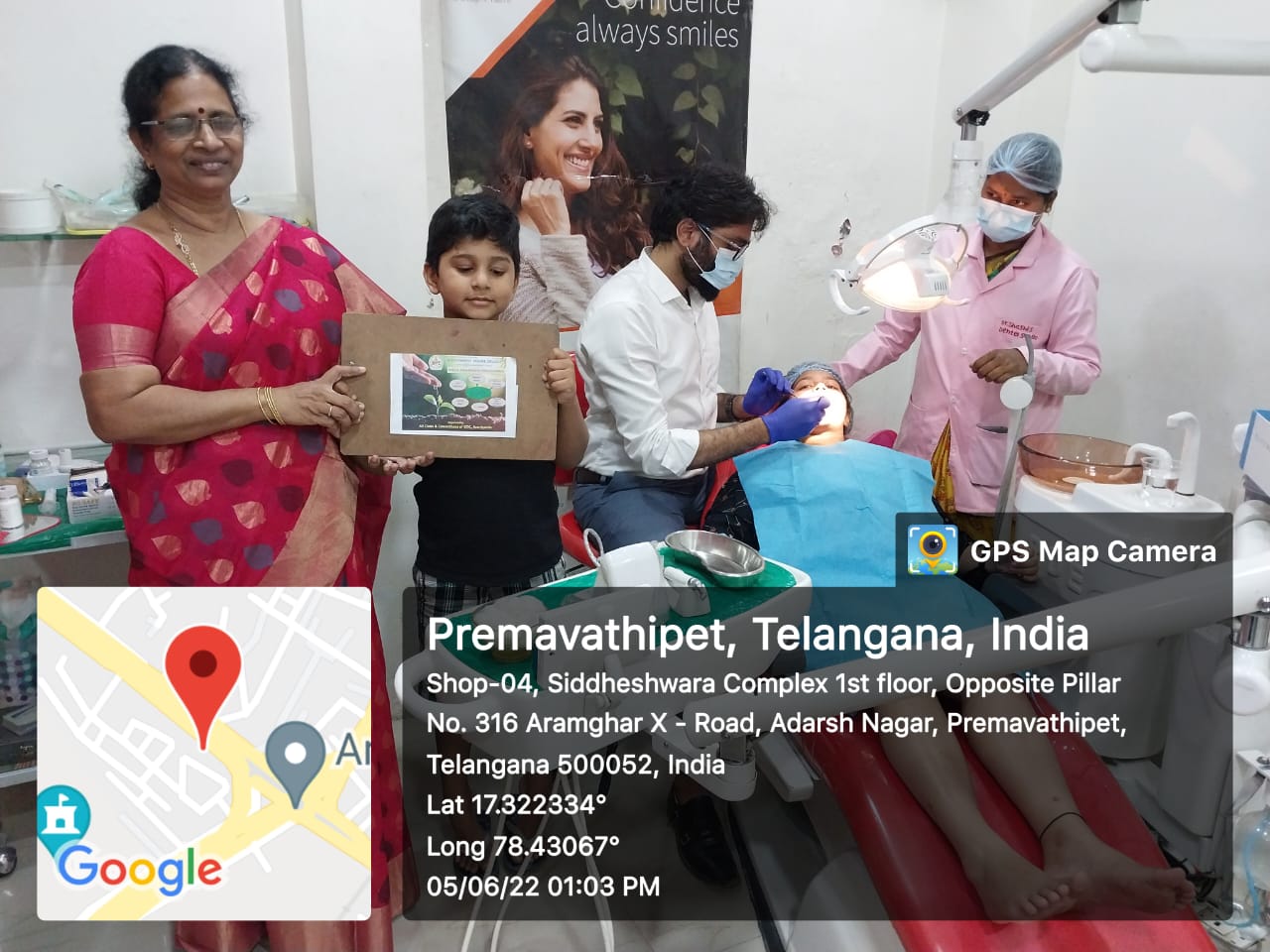
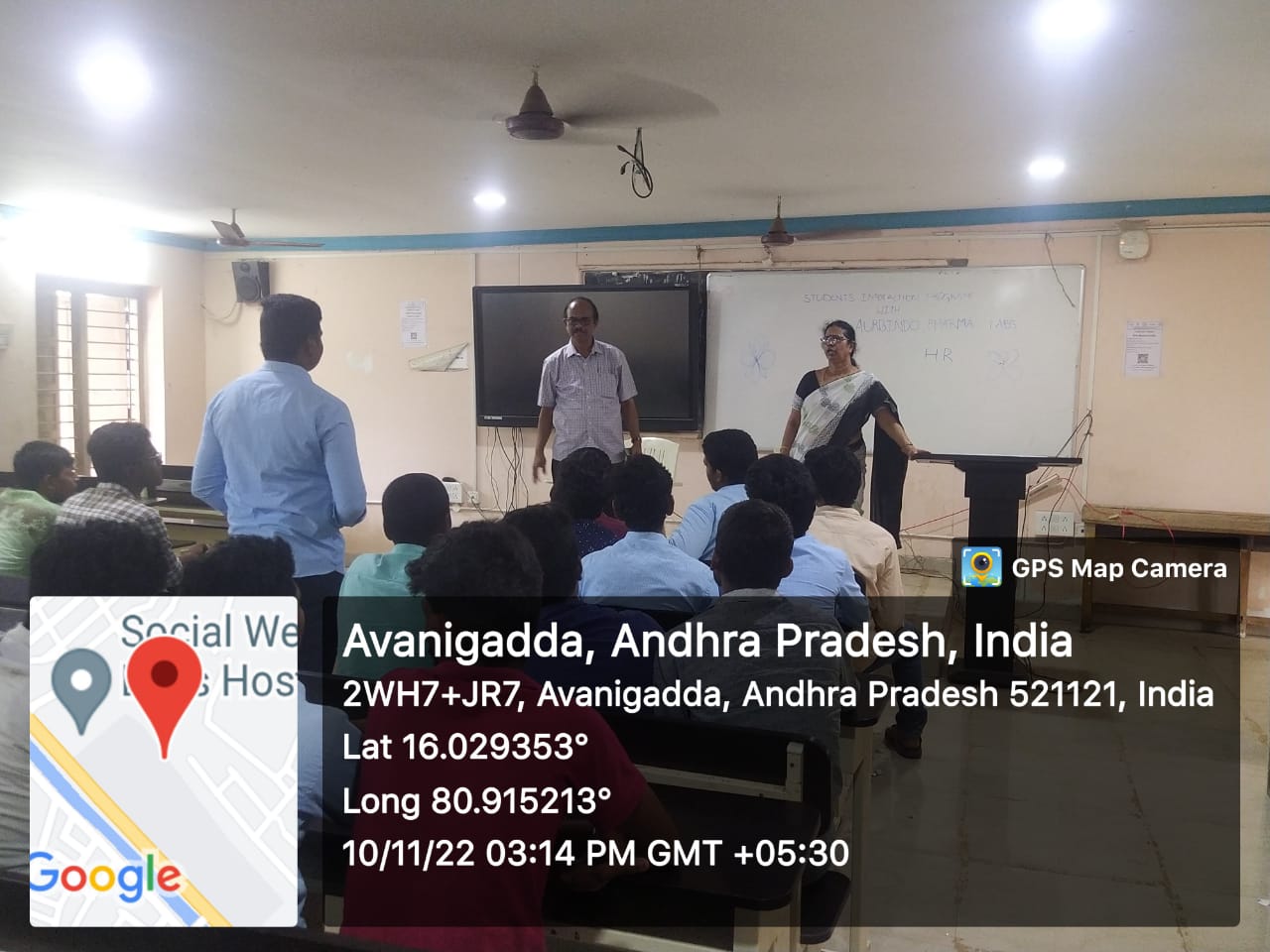
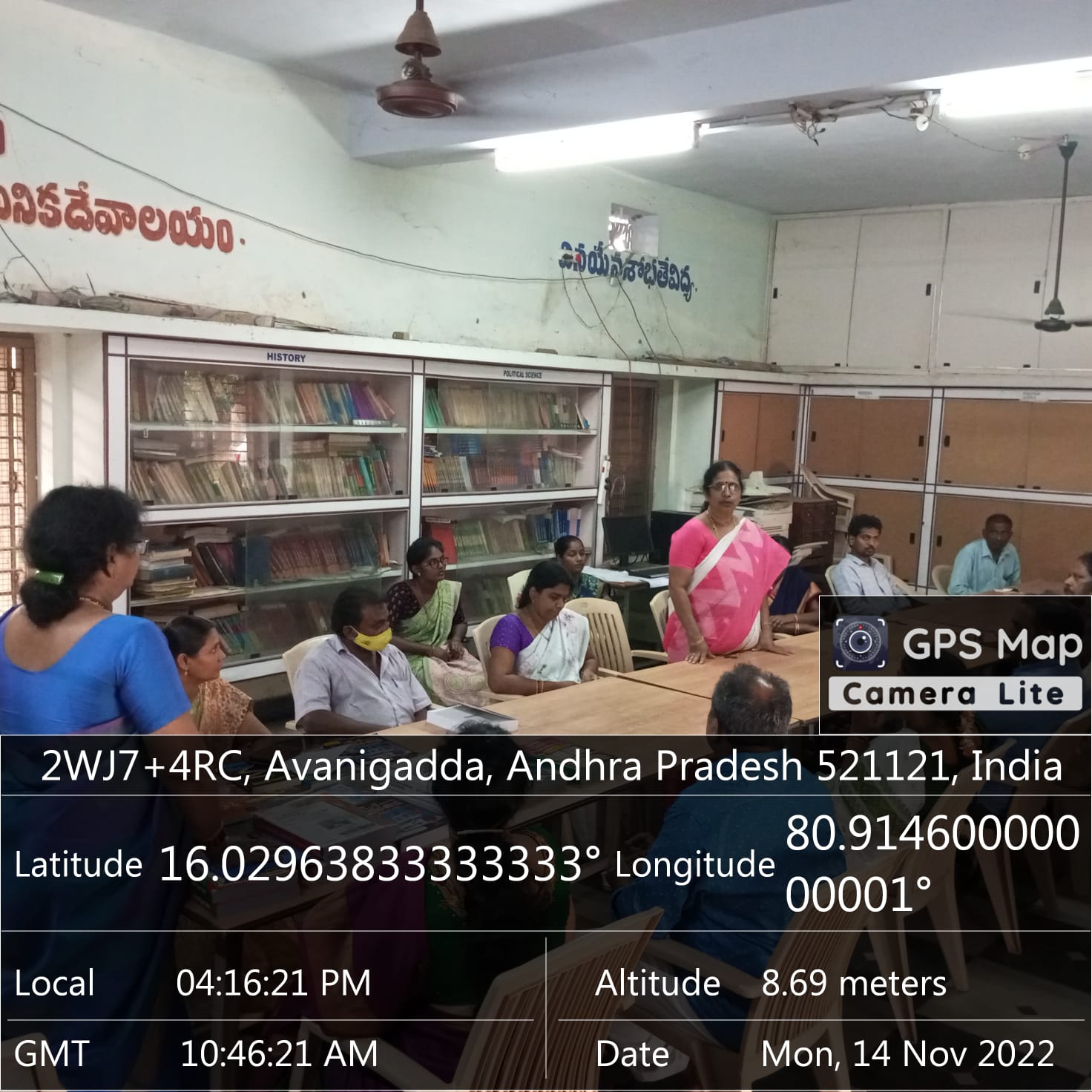
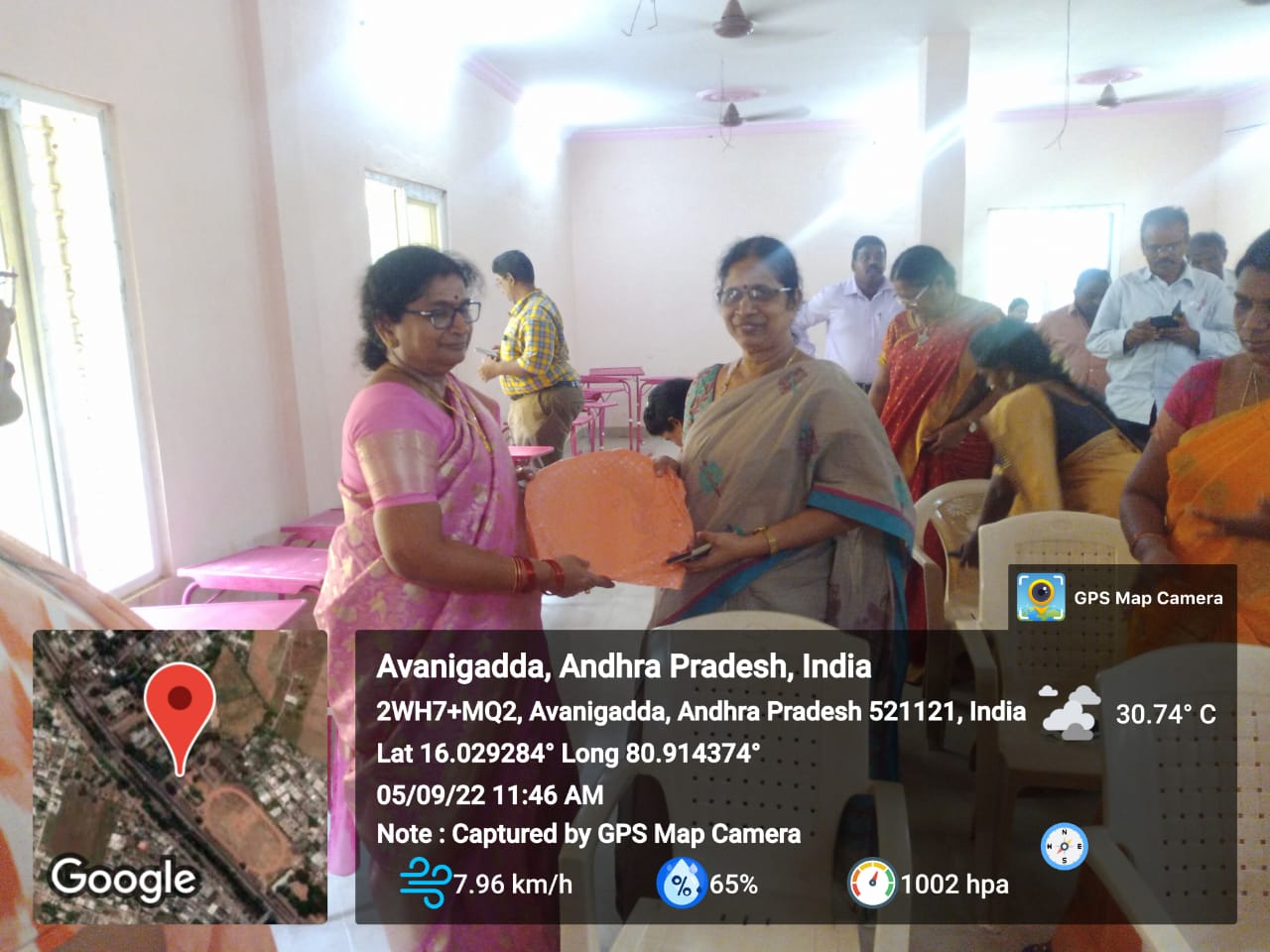
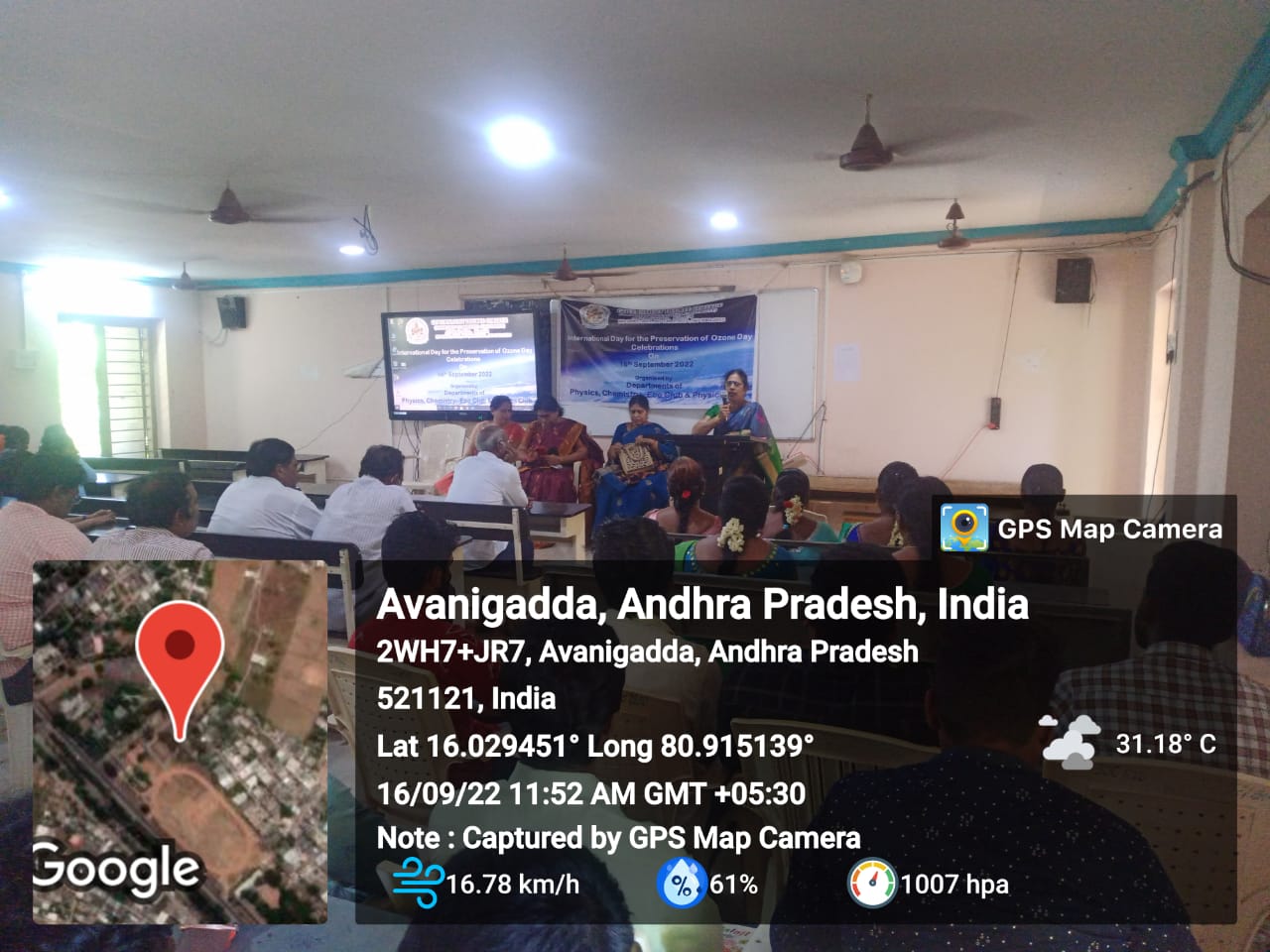
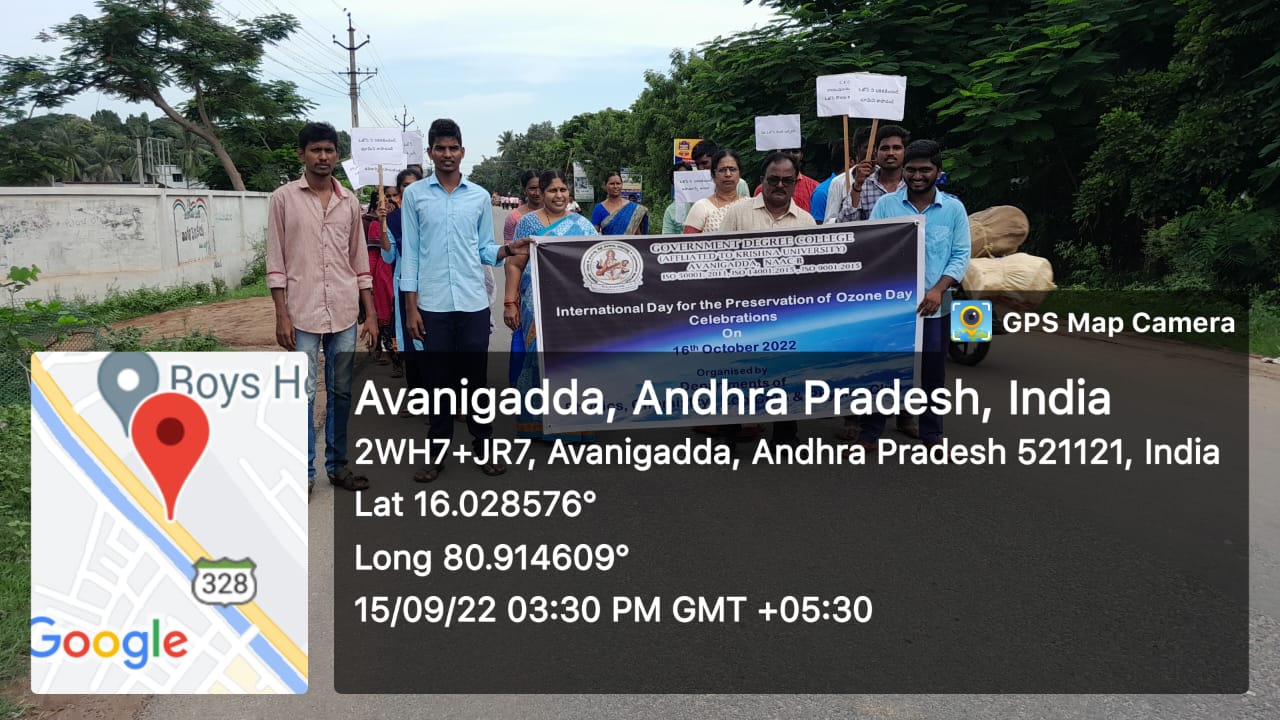
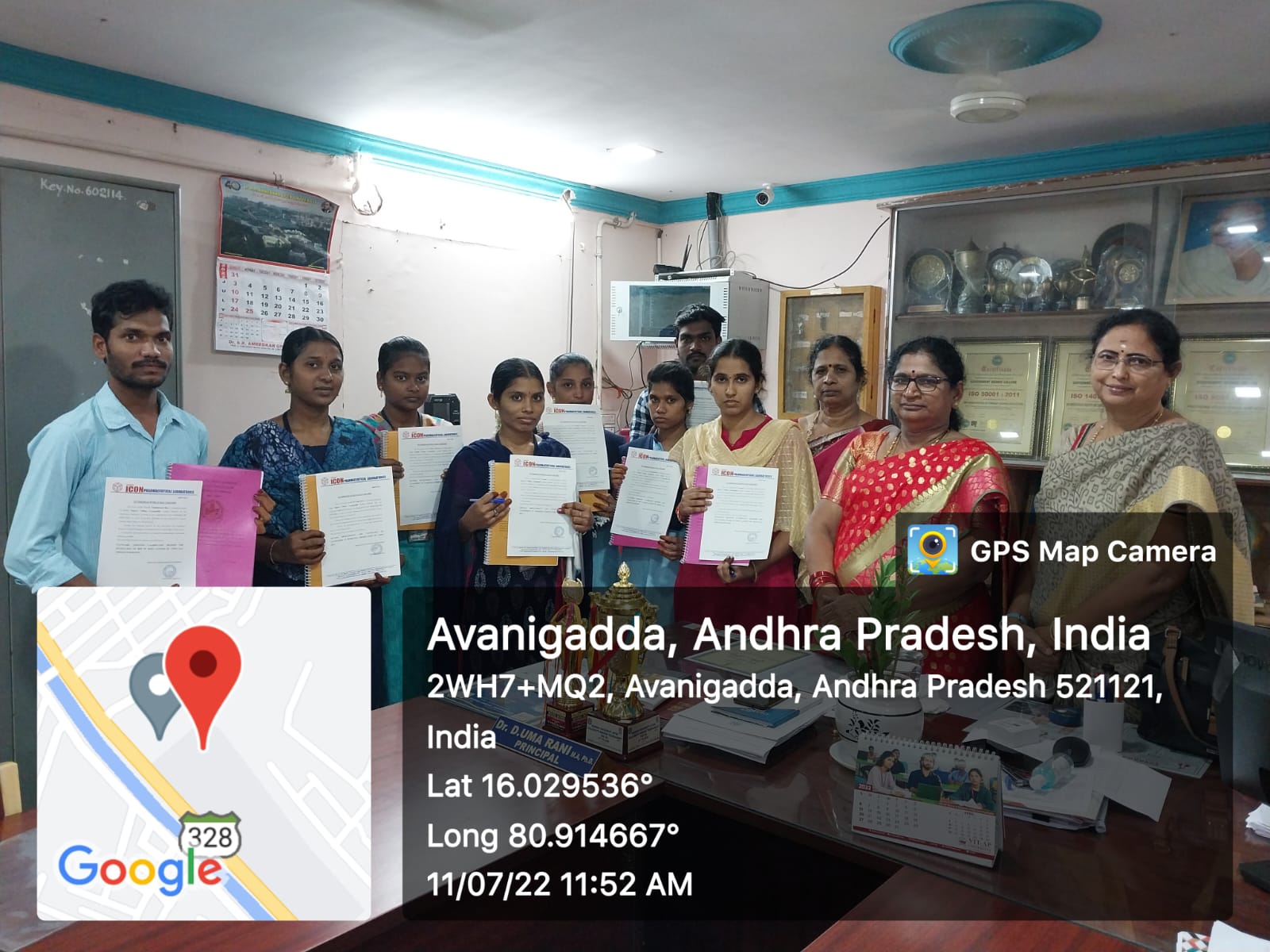

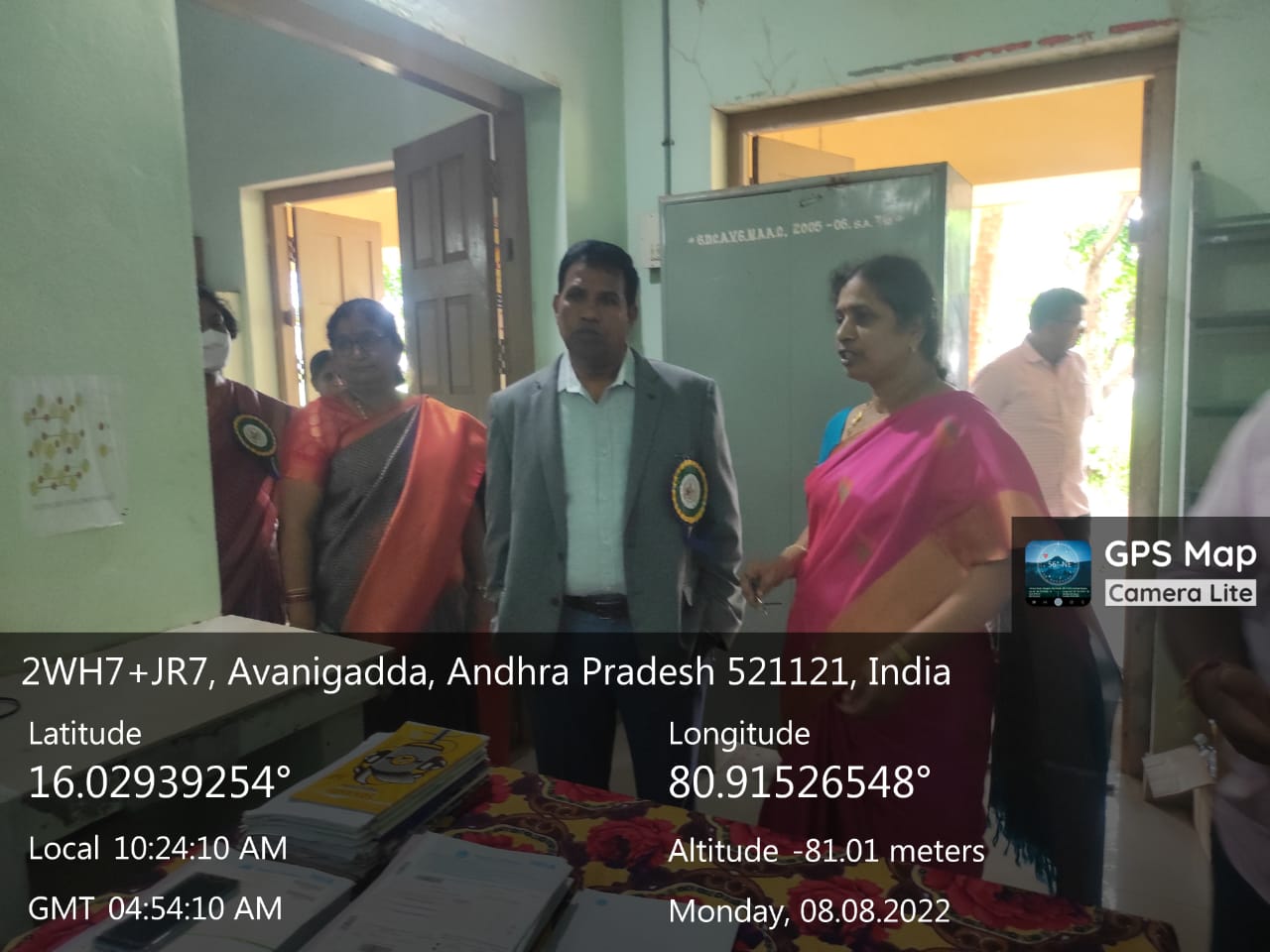
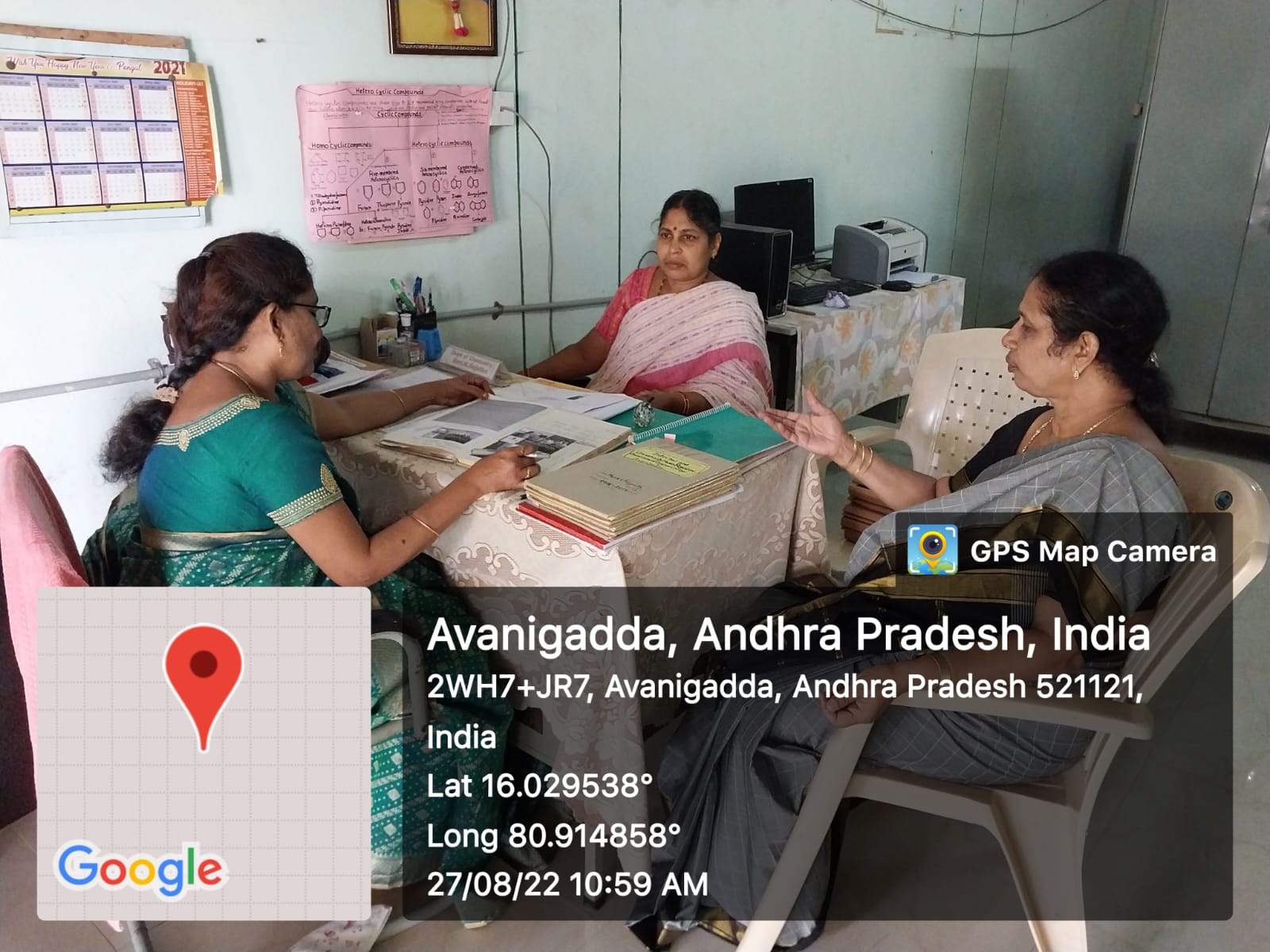
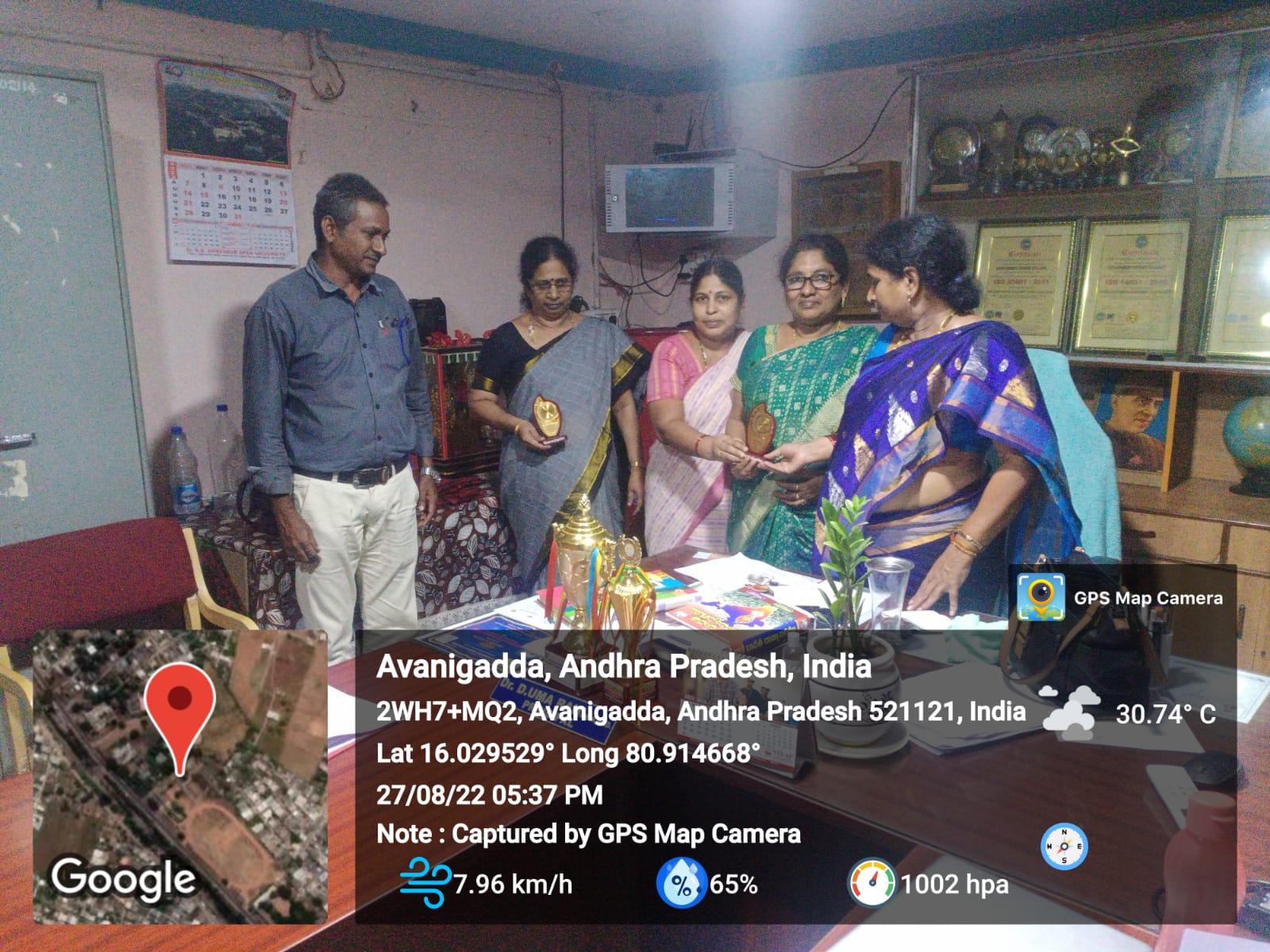
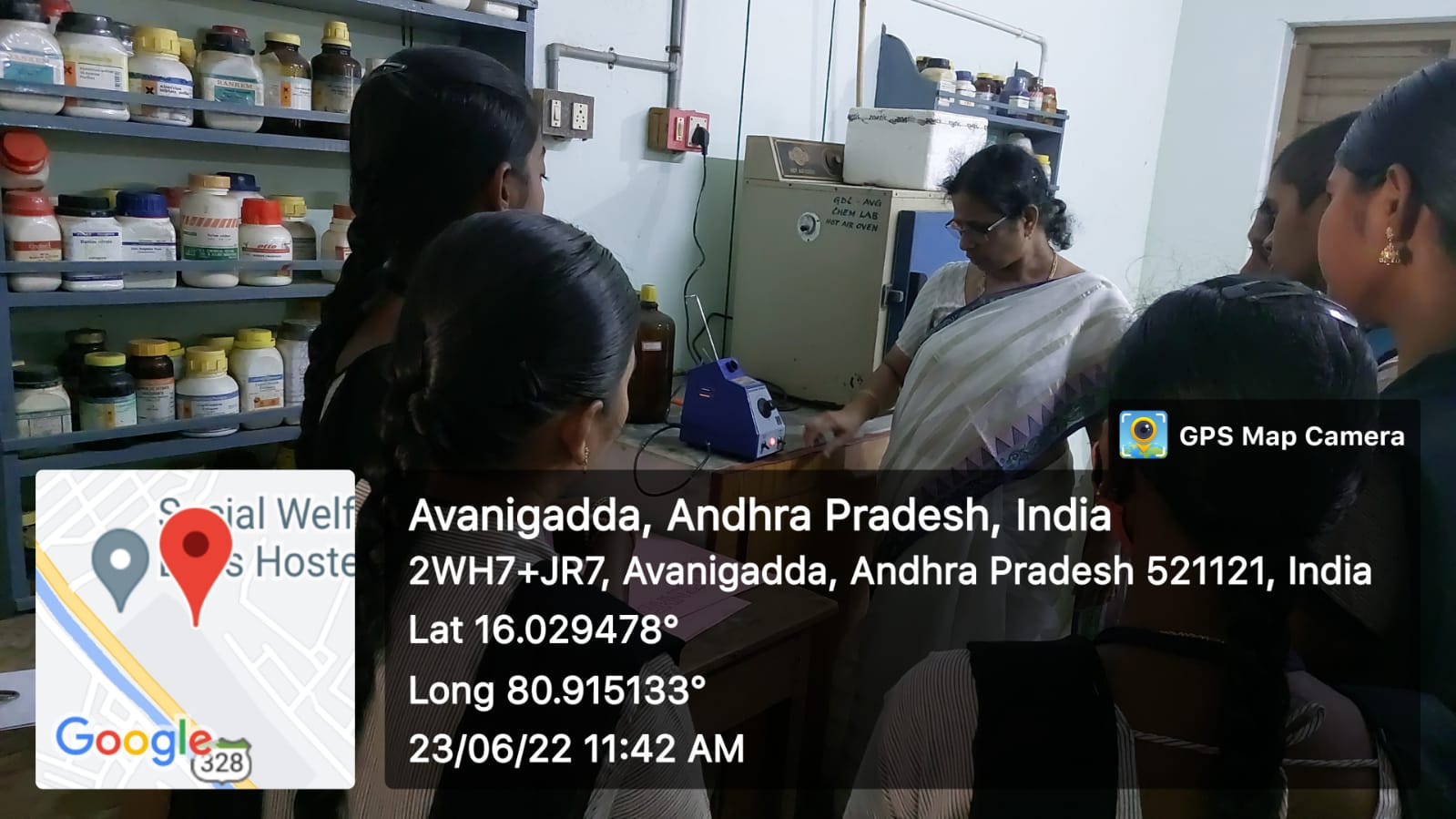
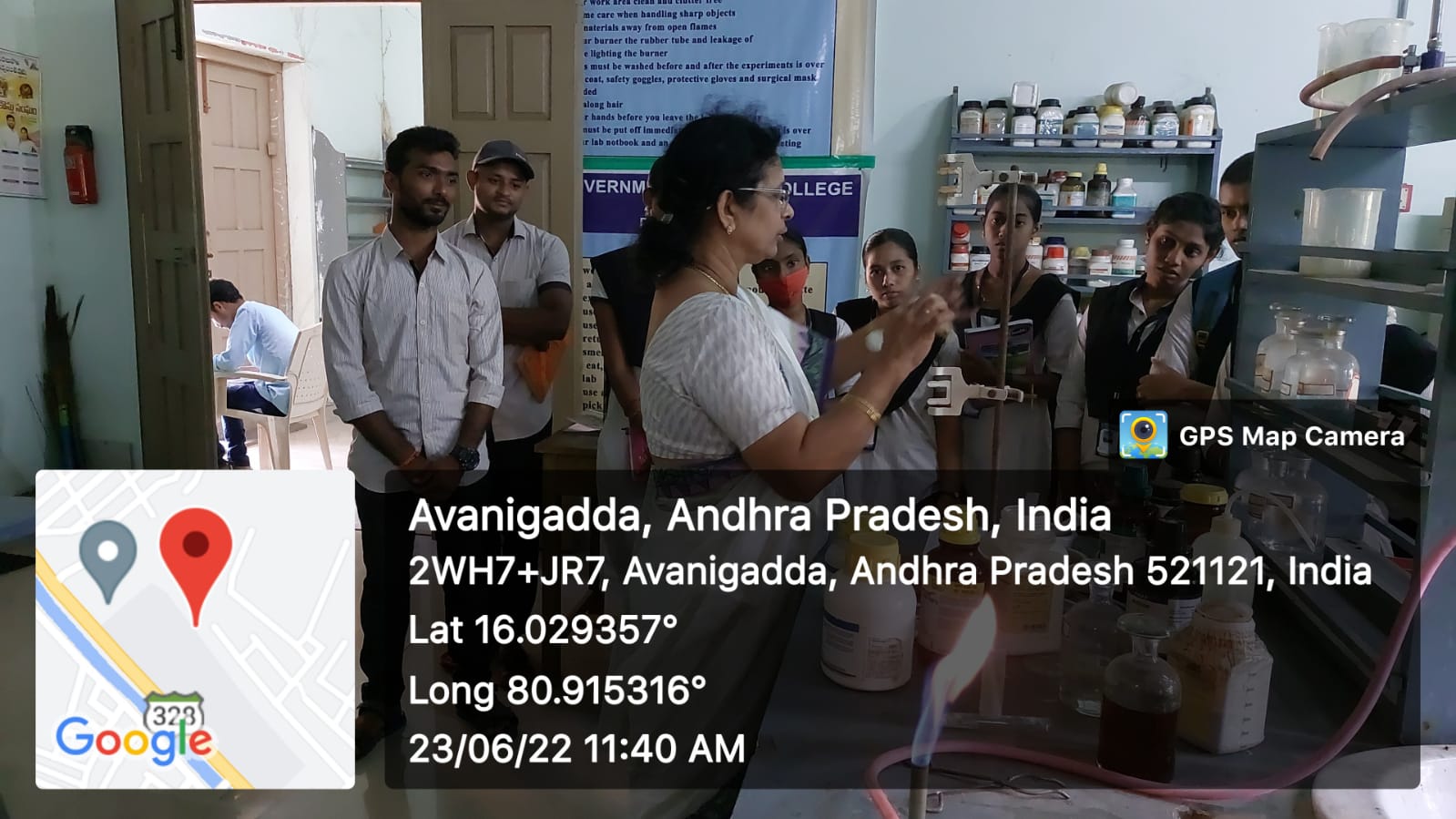
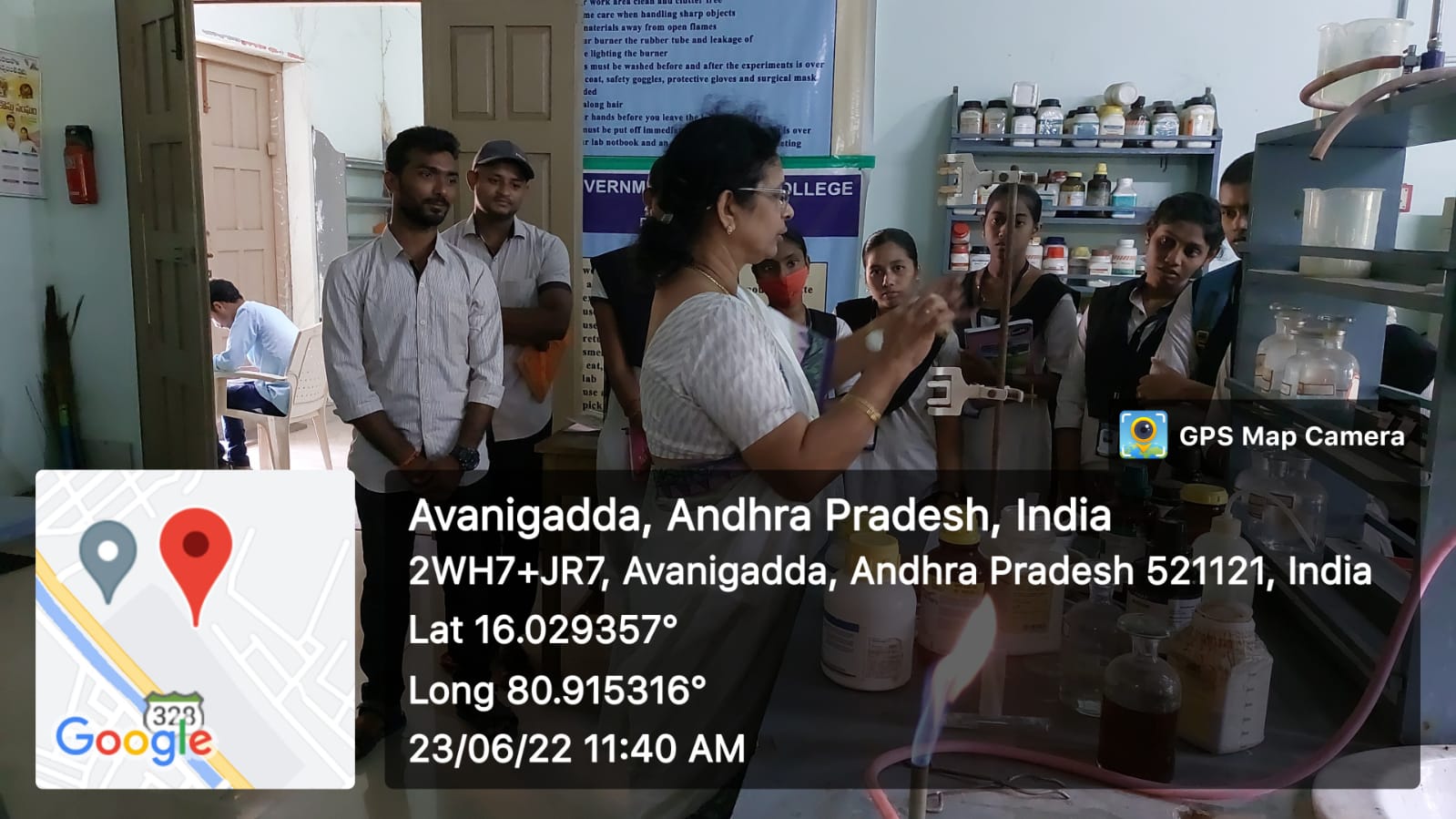
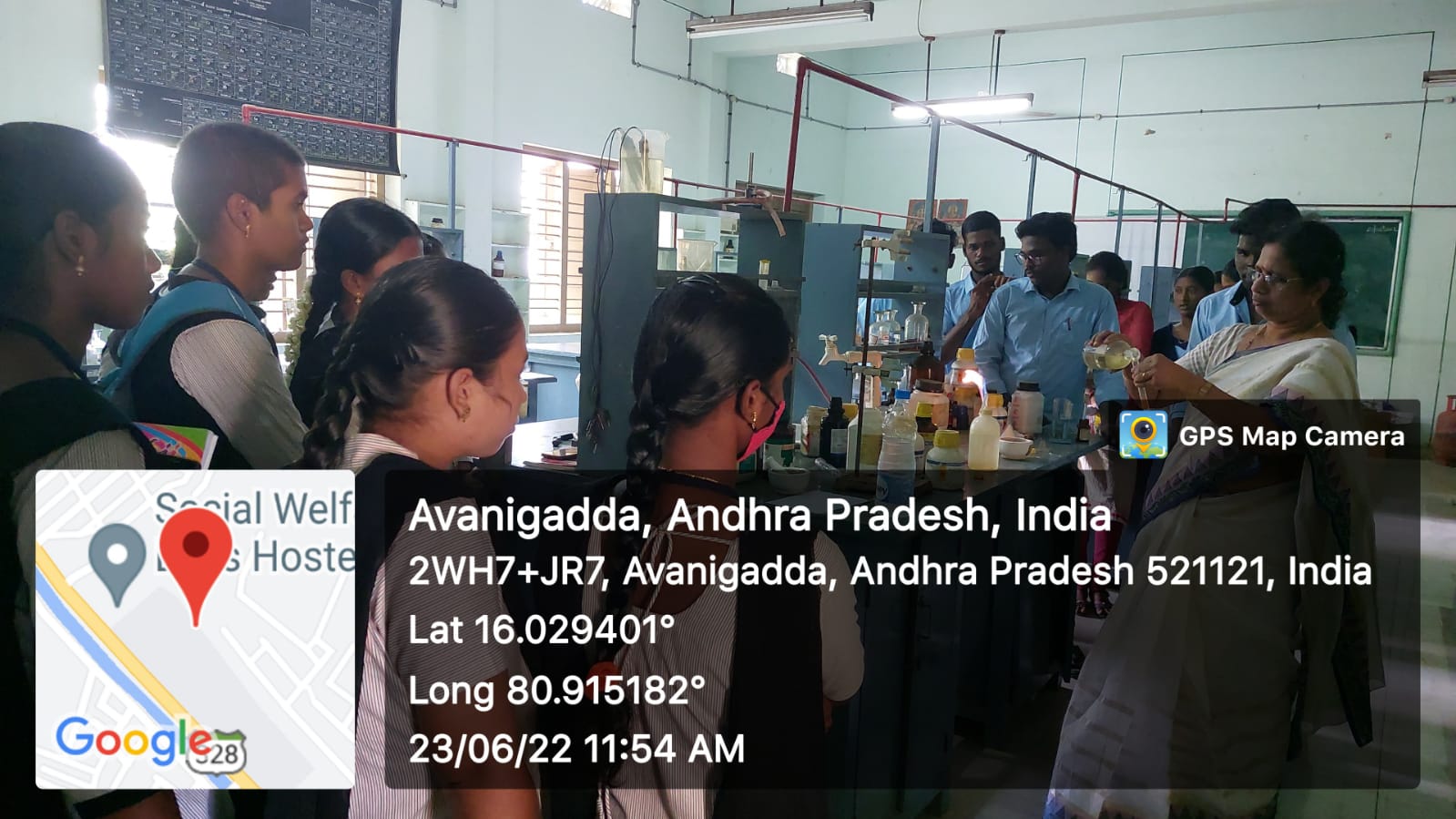
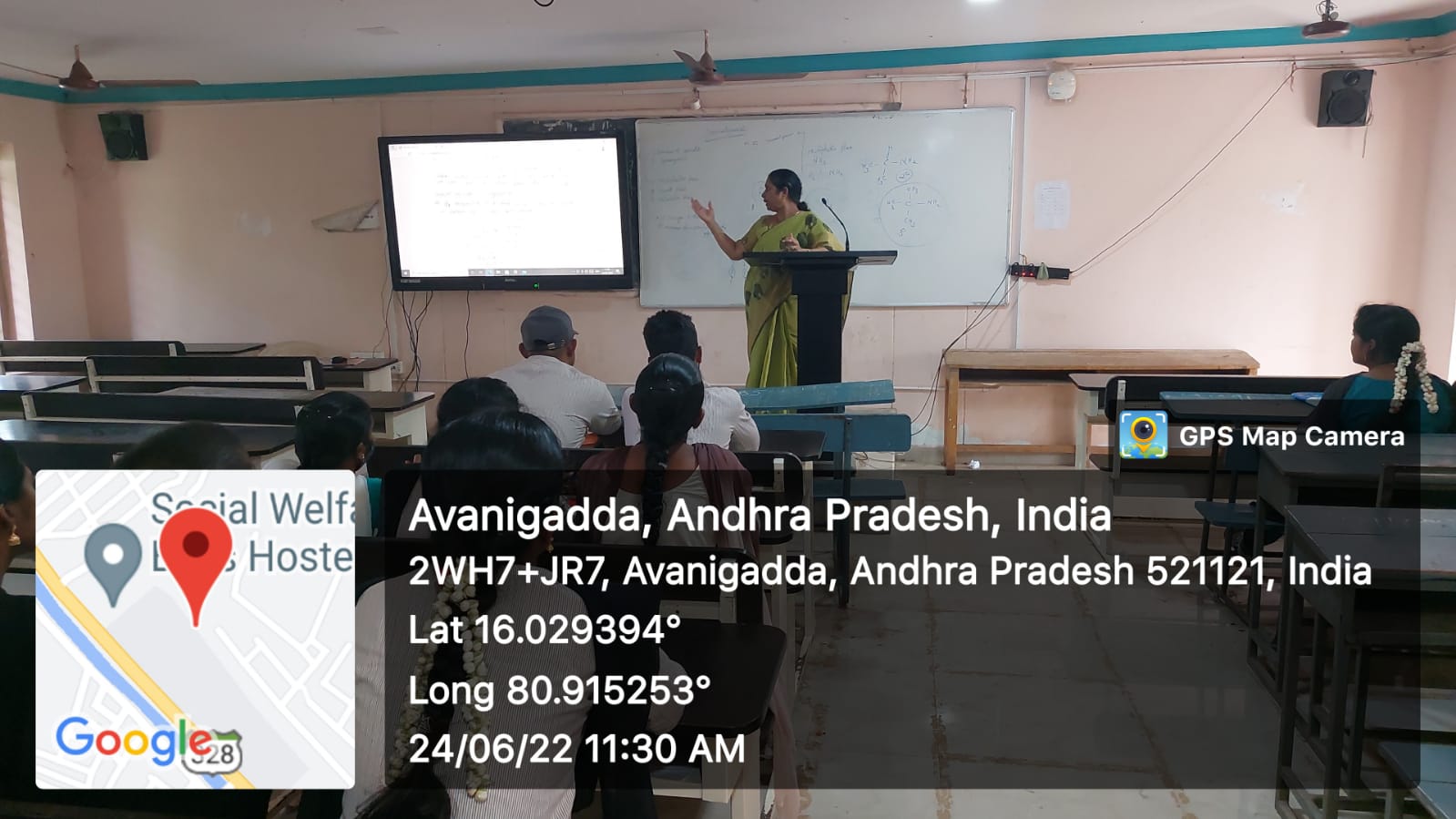
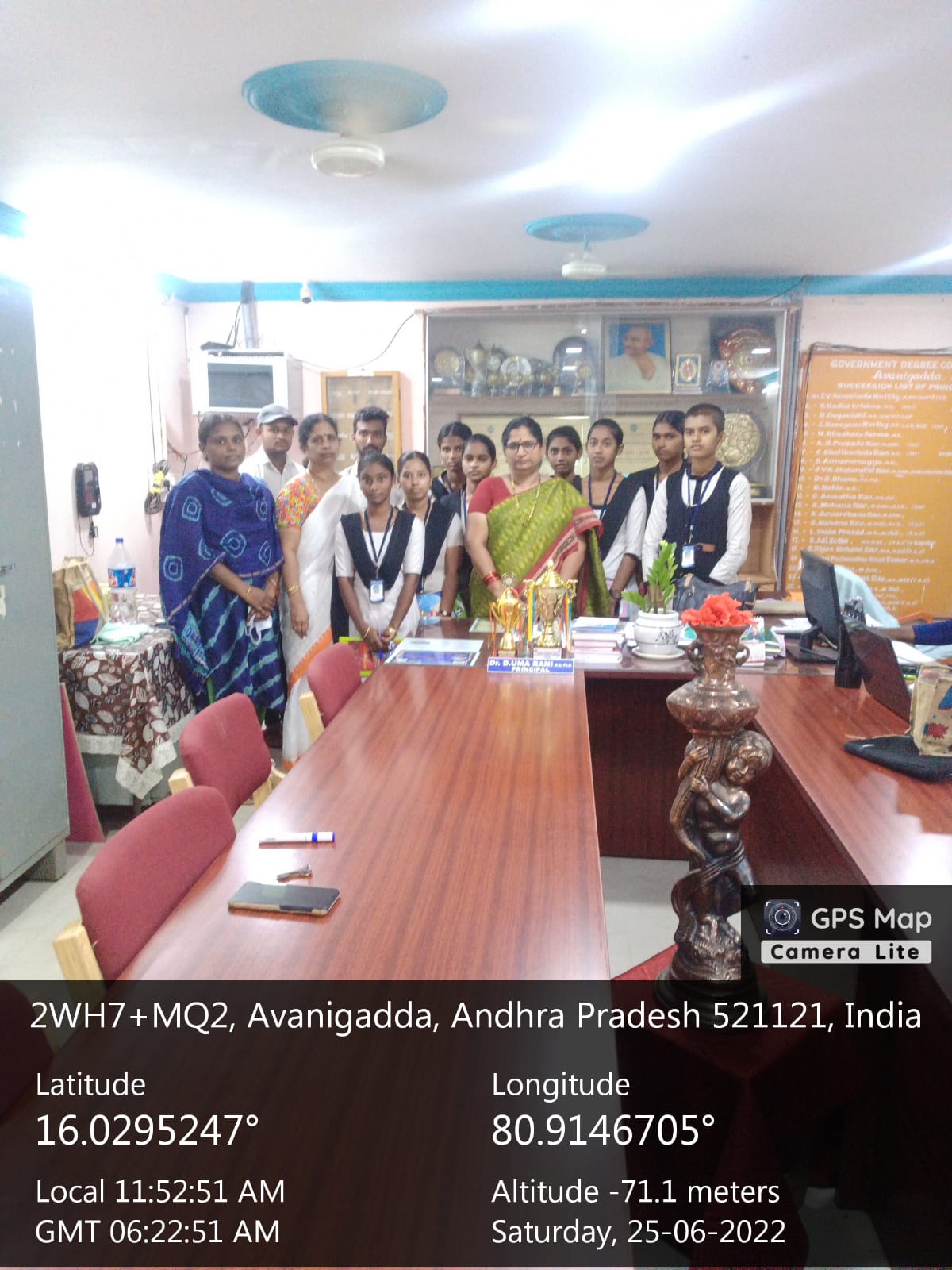
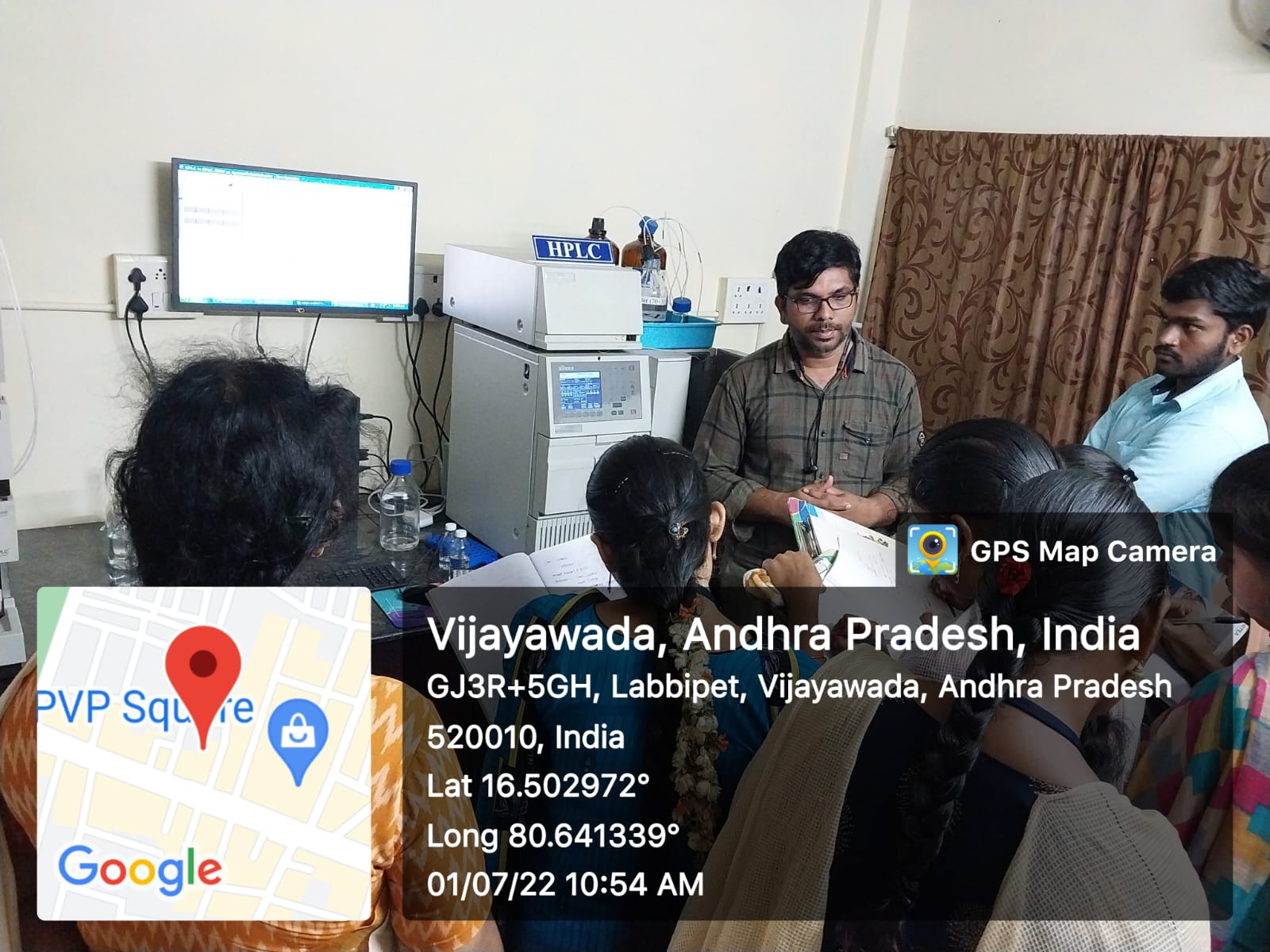
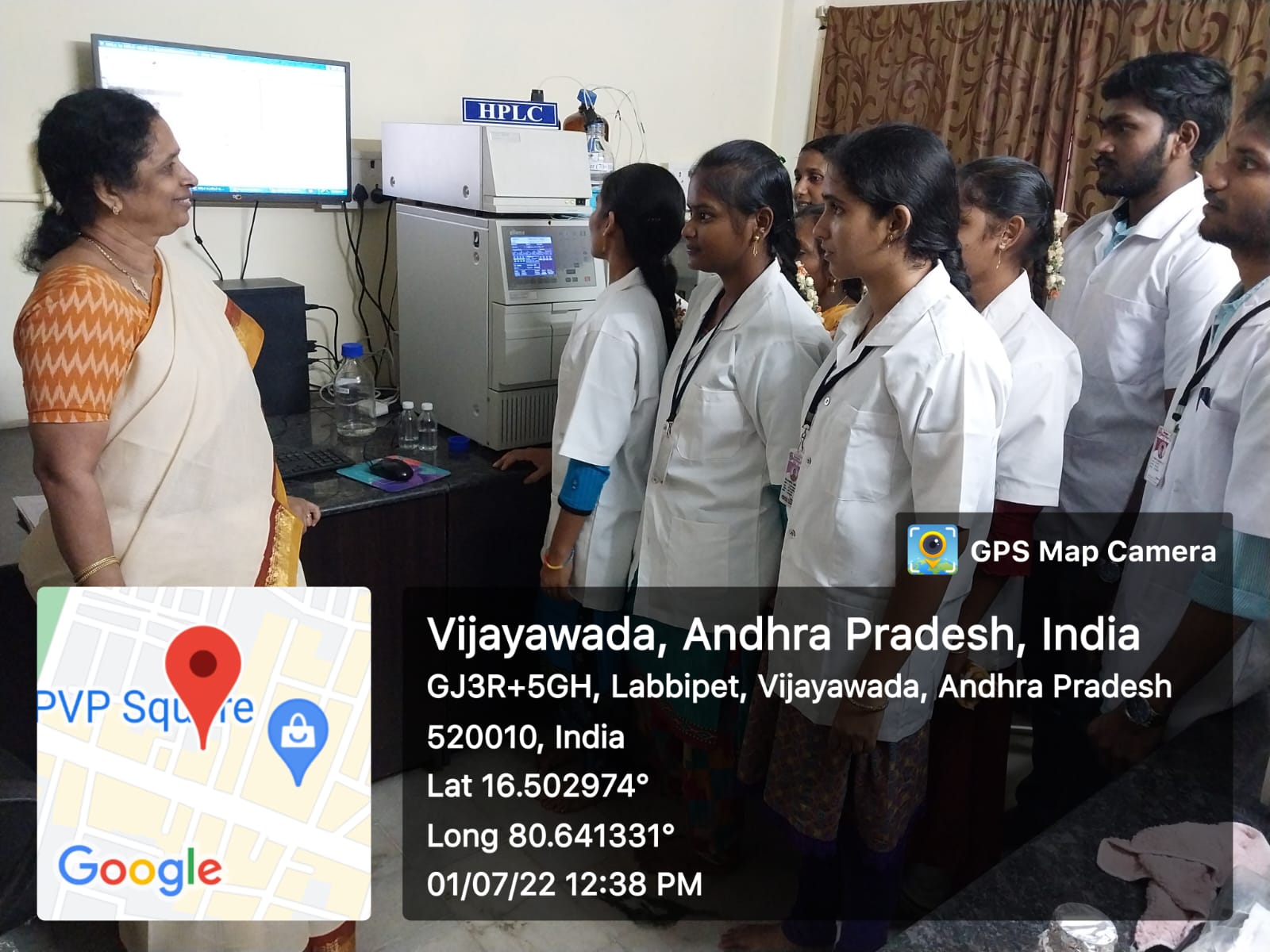
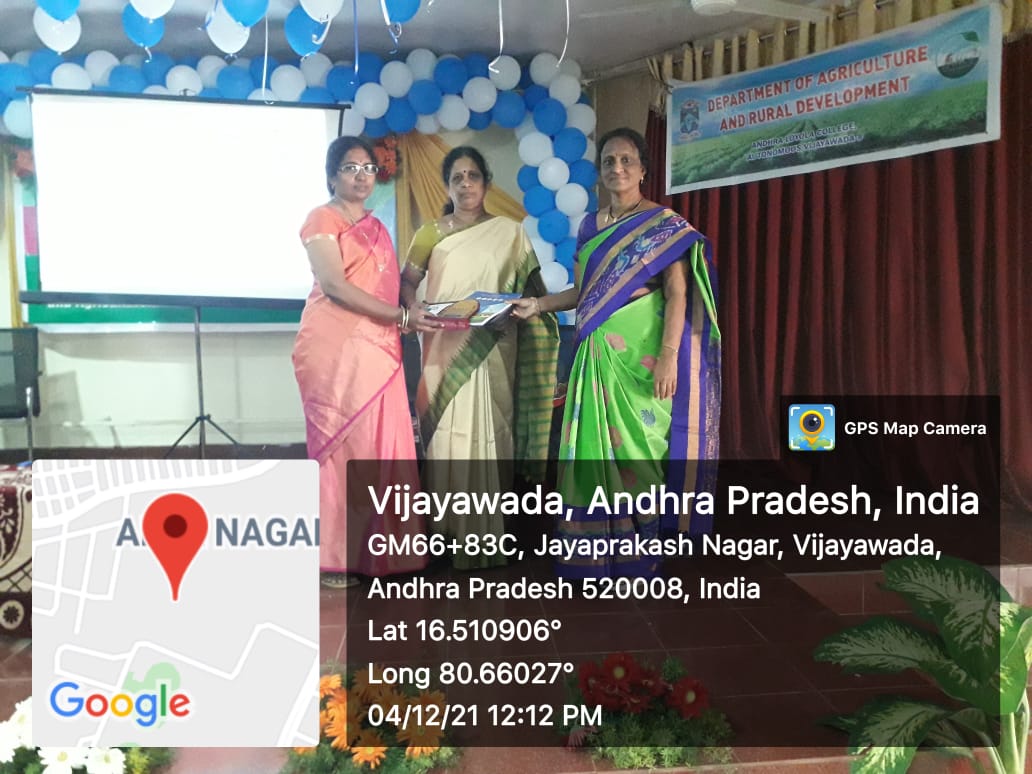
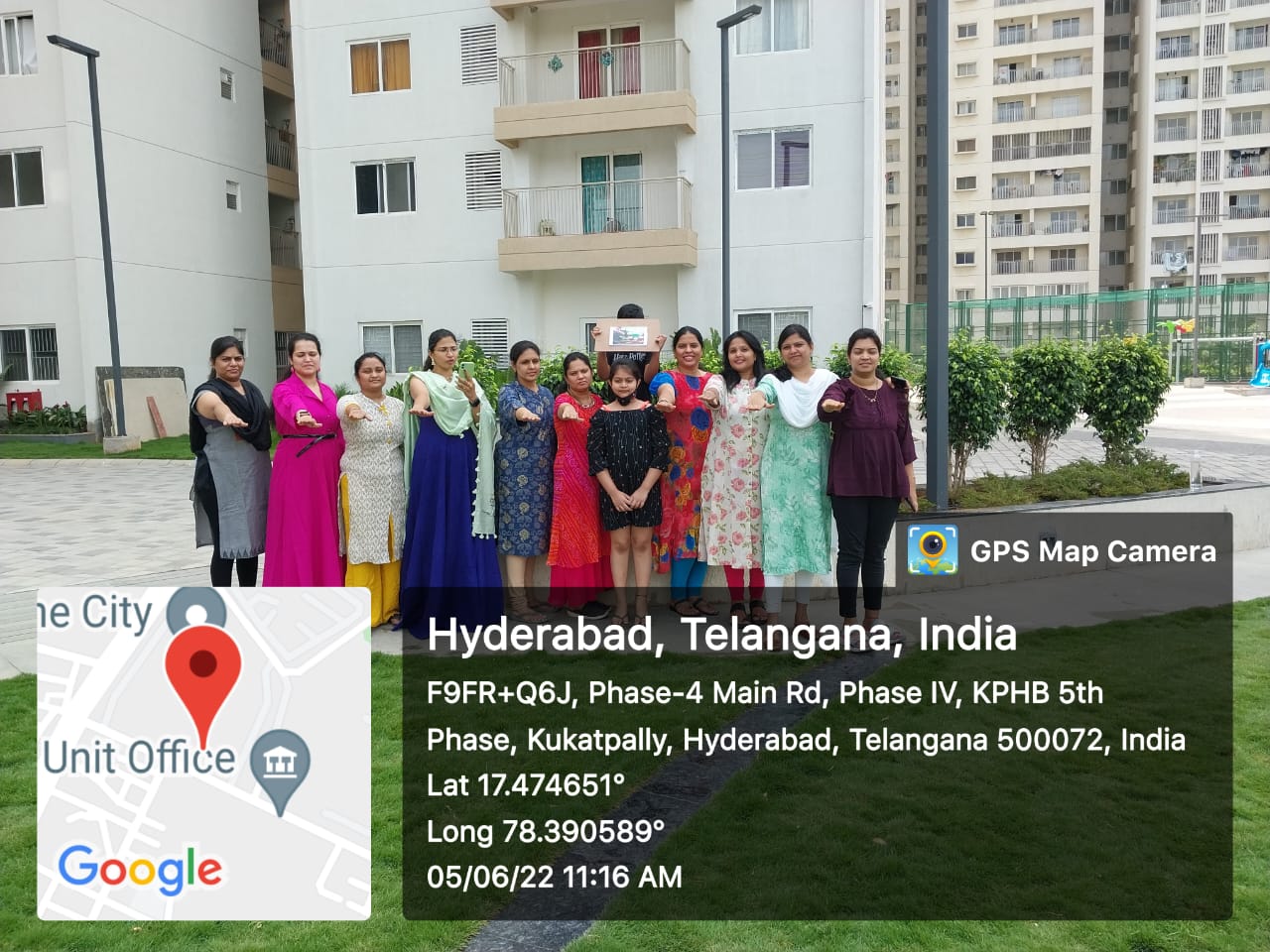
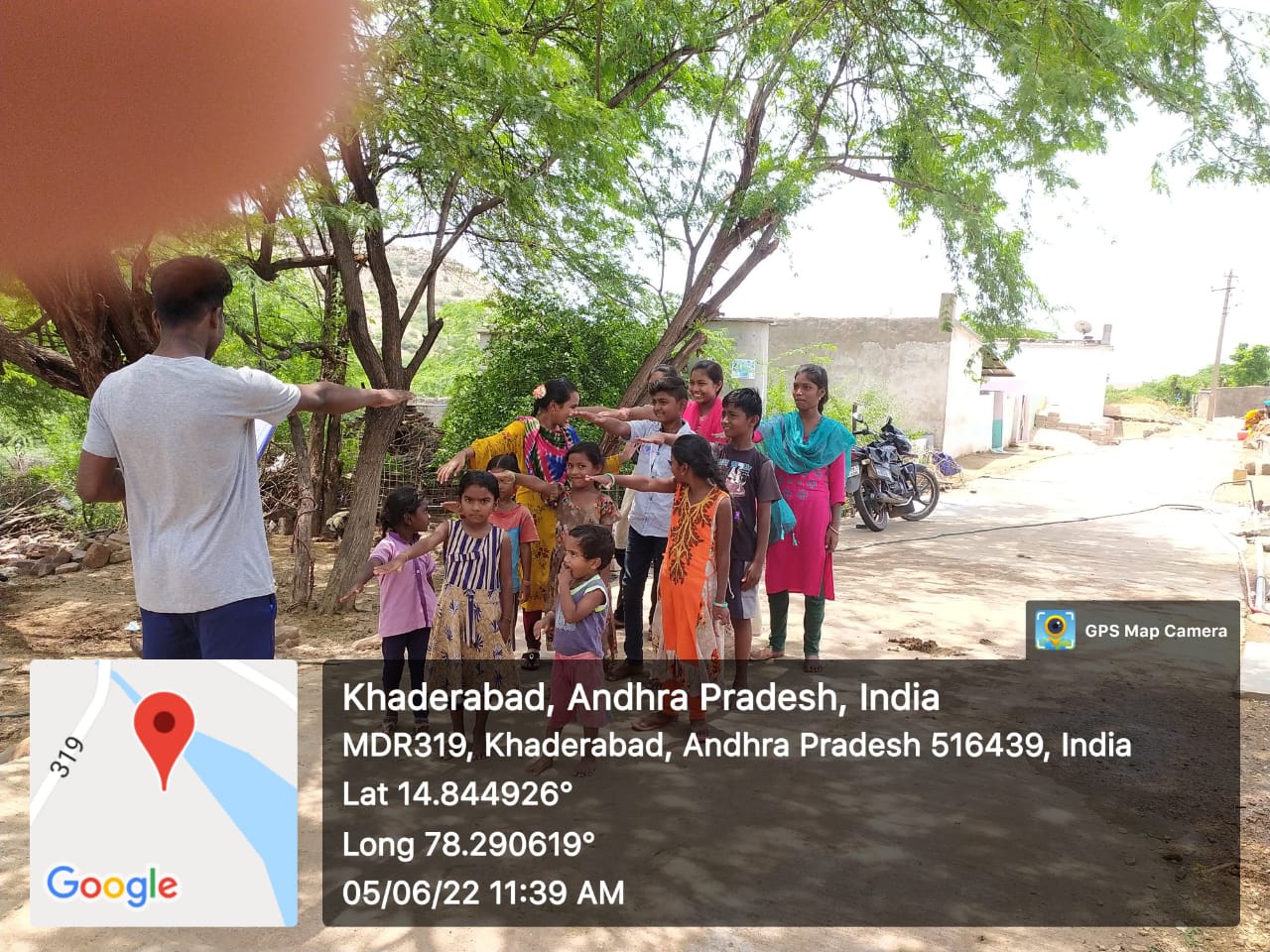
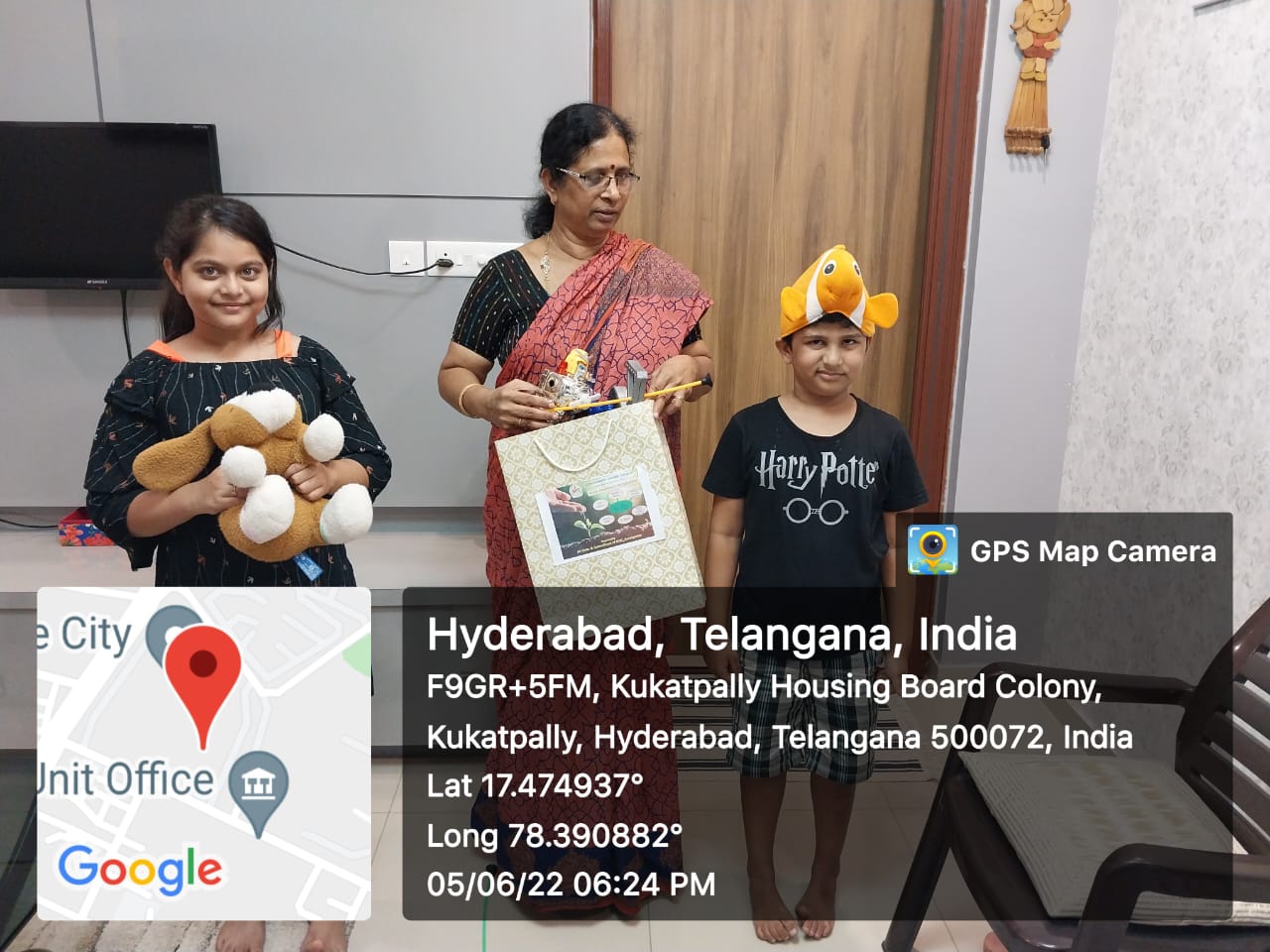
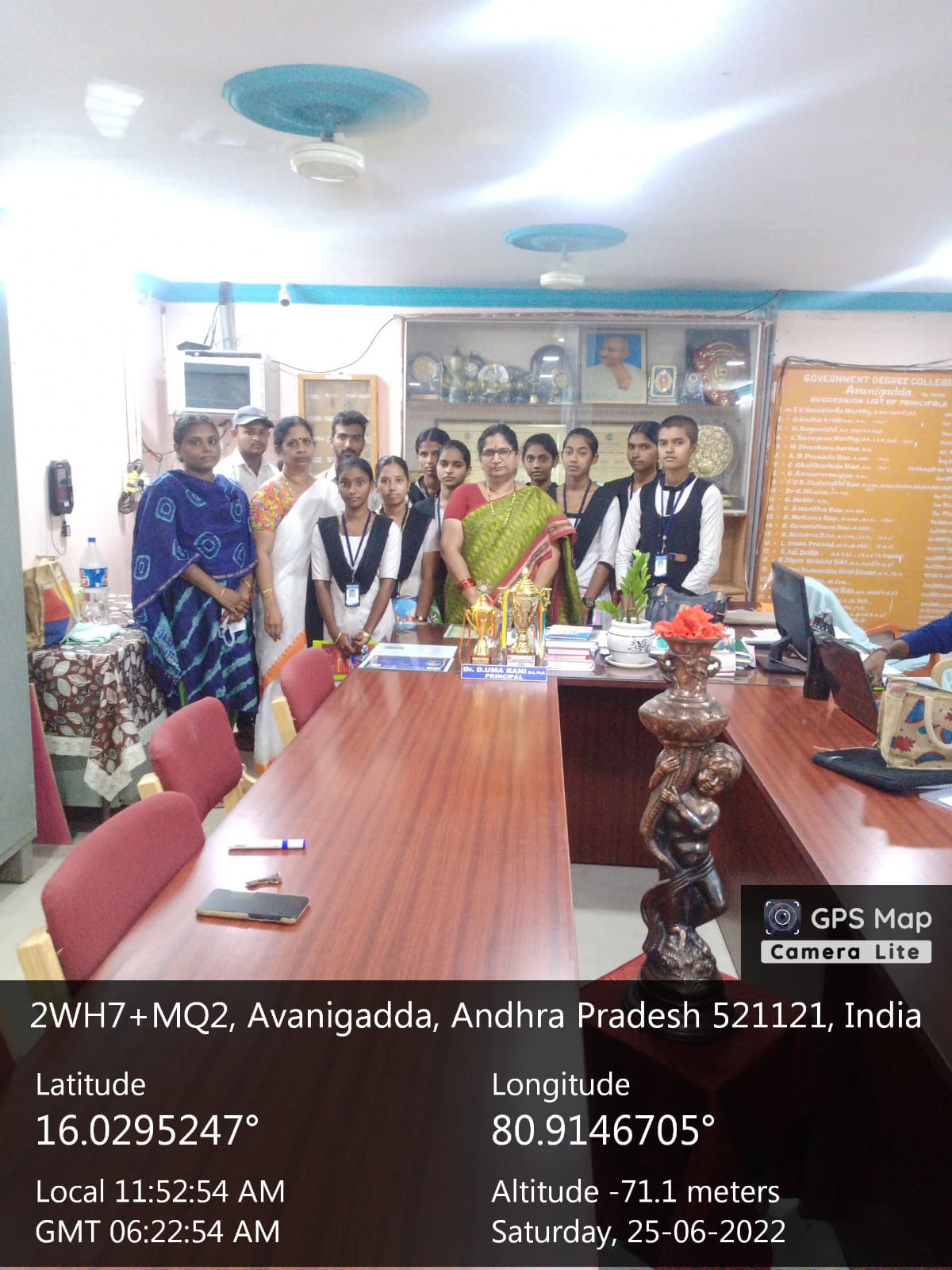
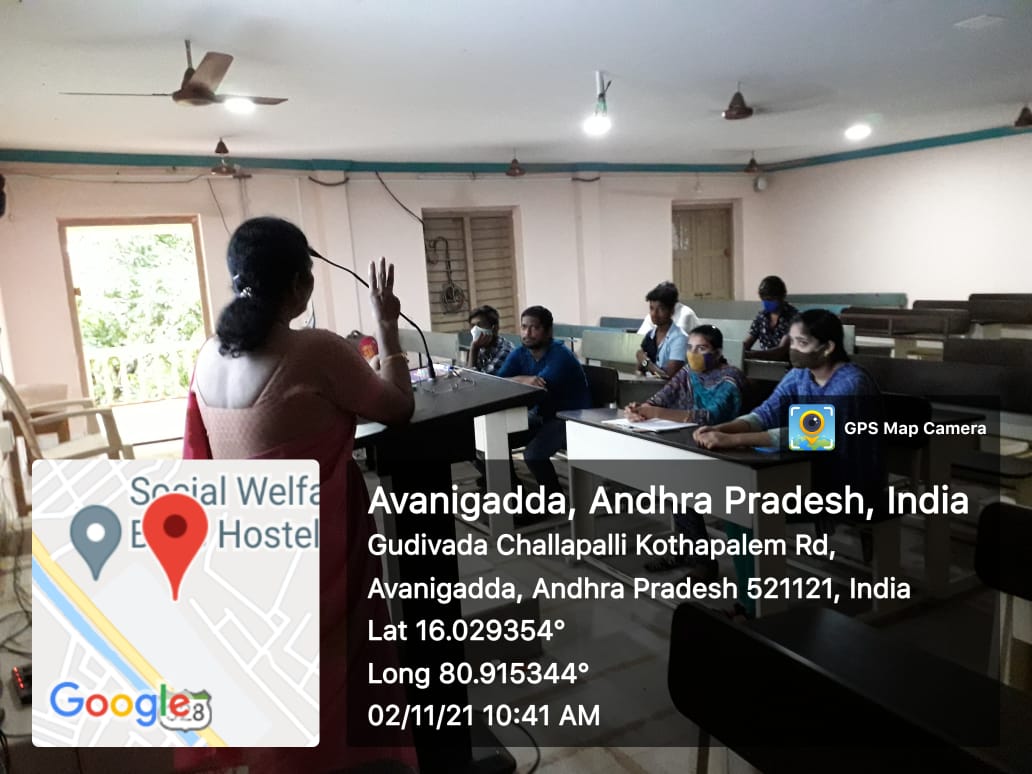
Contact Us
K.Sujatha
M.Sc., M.Phil
Lecturer In-Charge
Department of Chemistry
sujatha.ksmbhampati63@gmail.com
